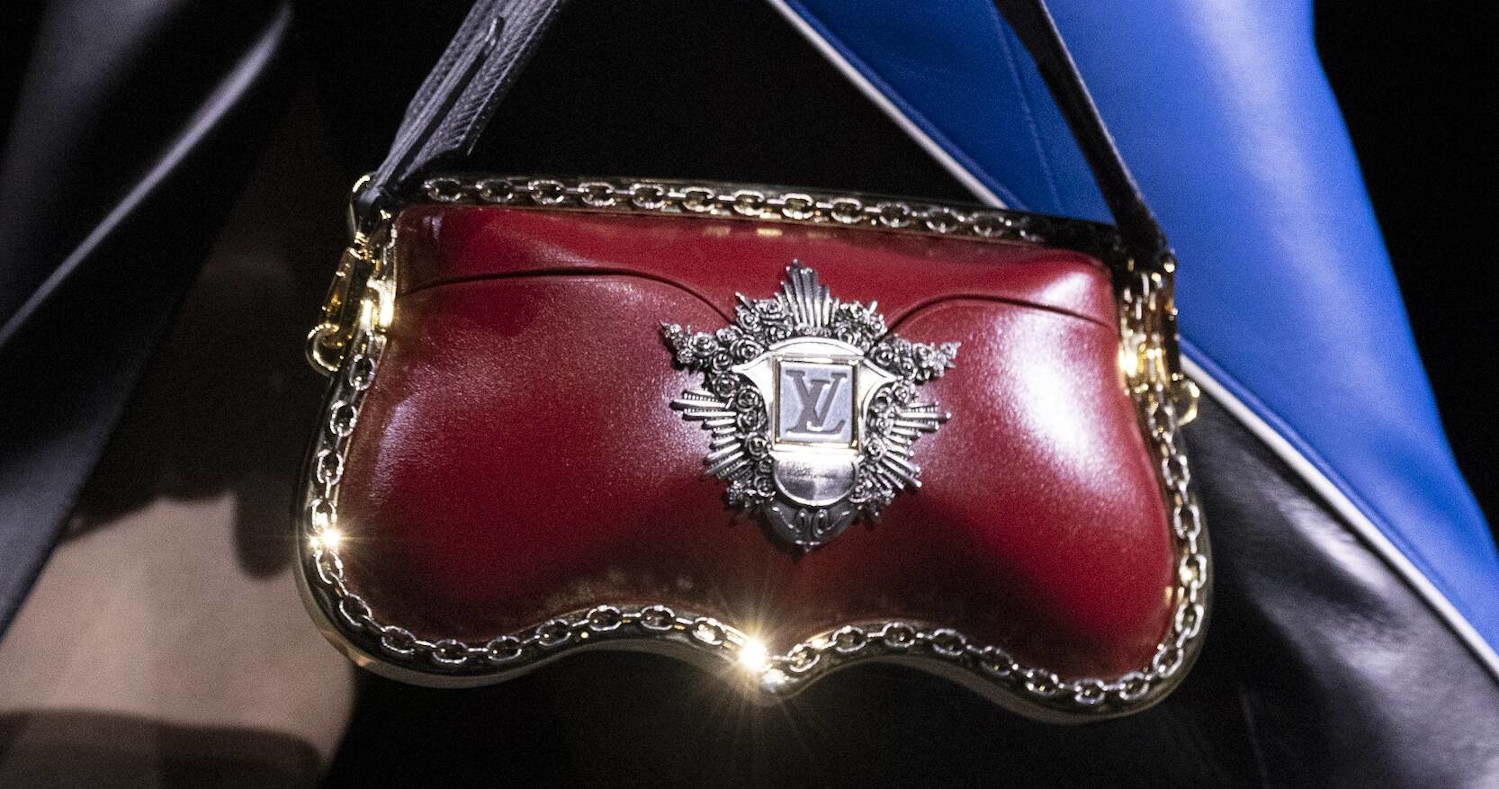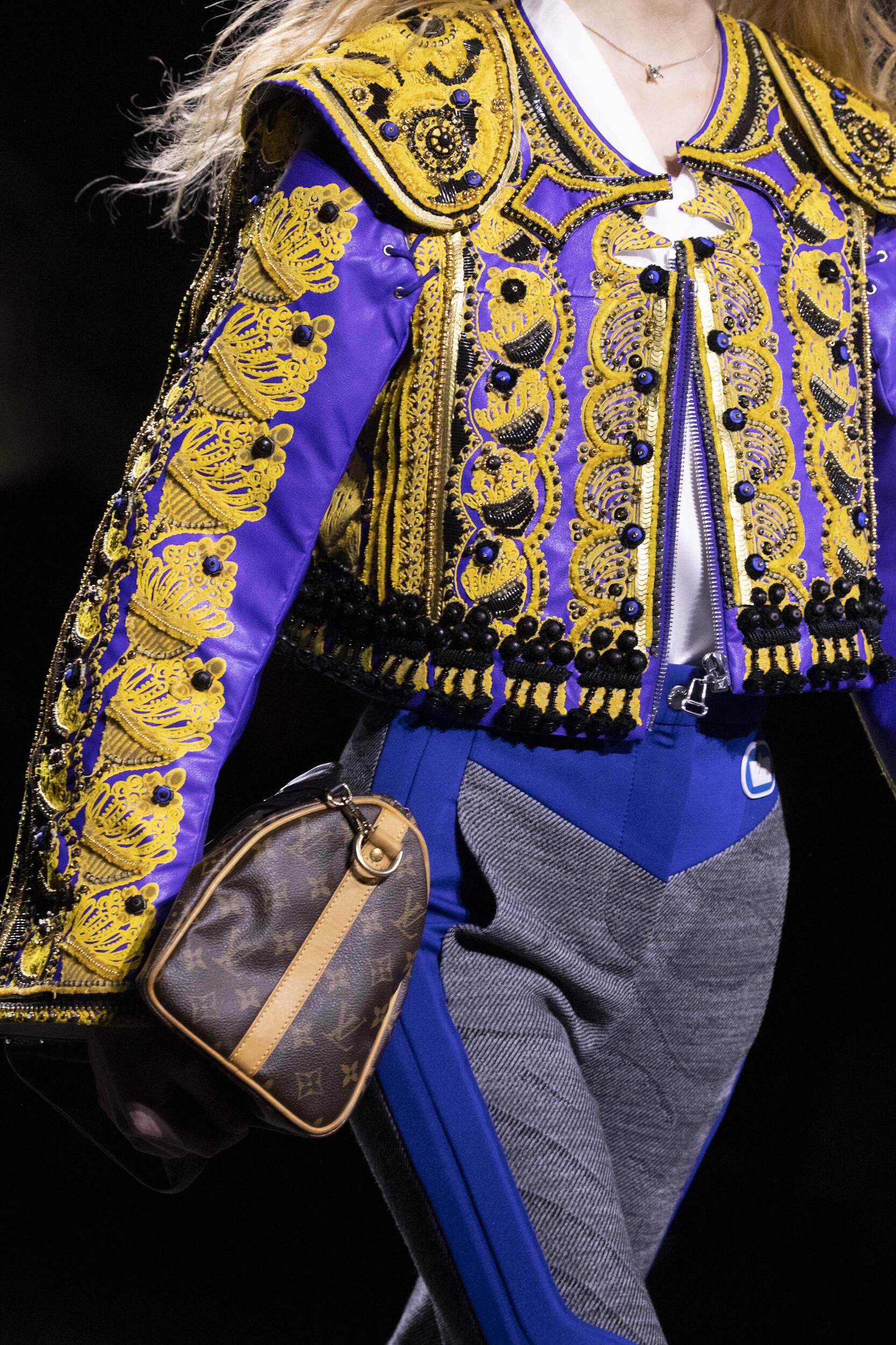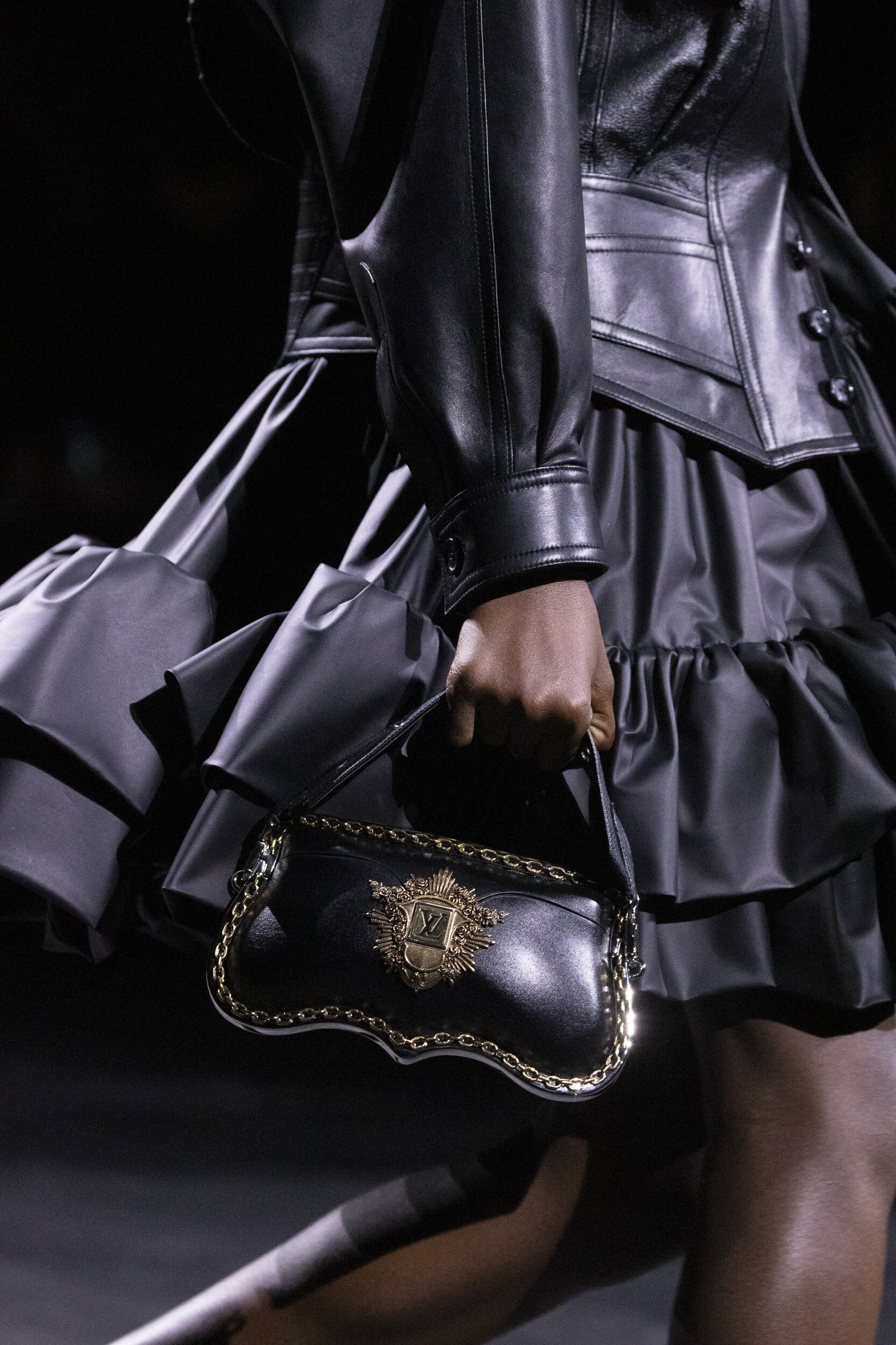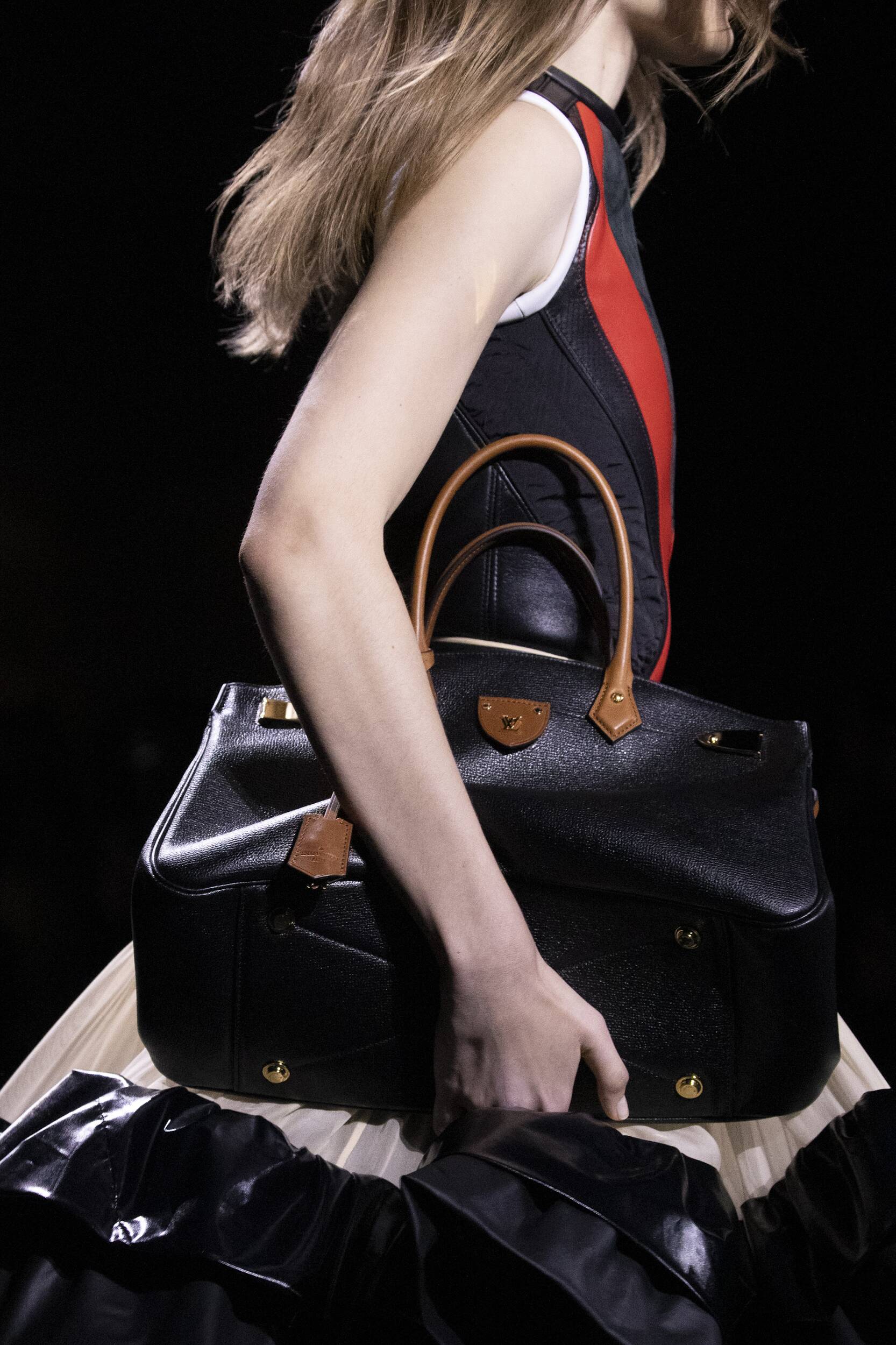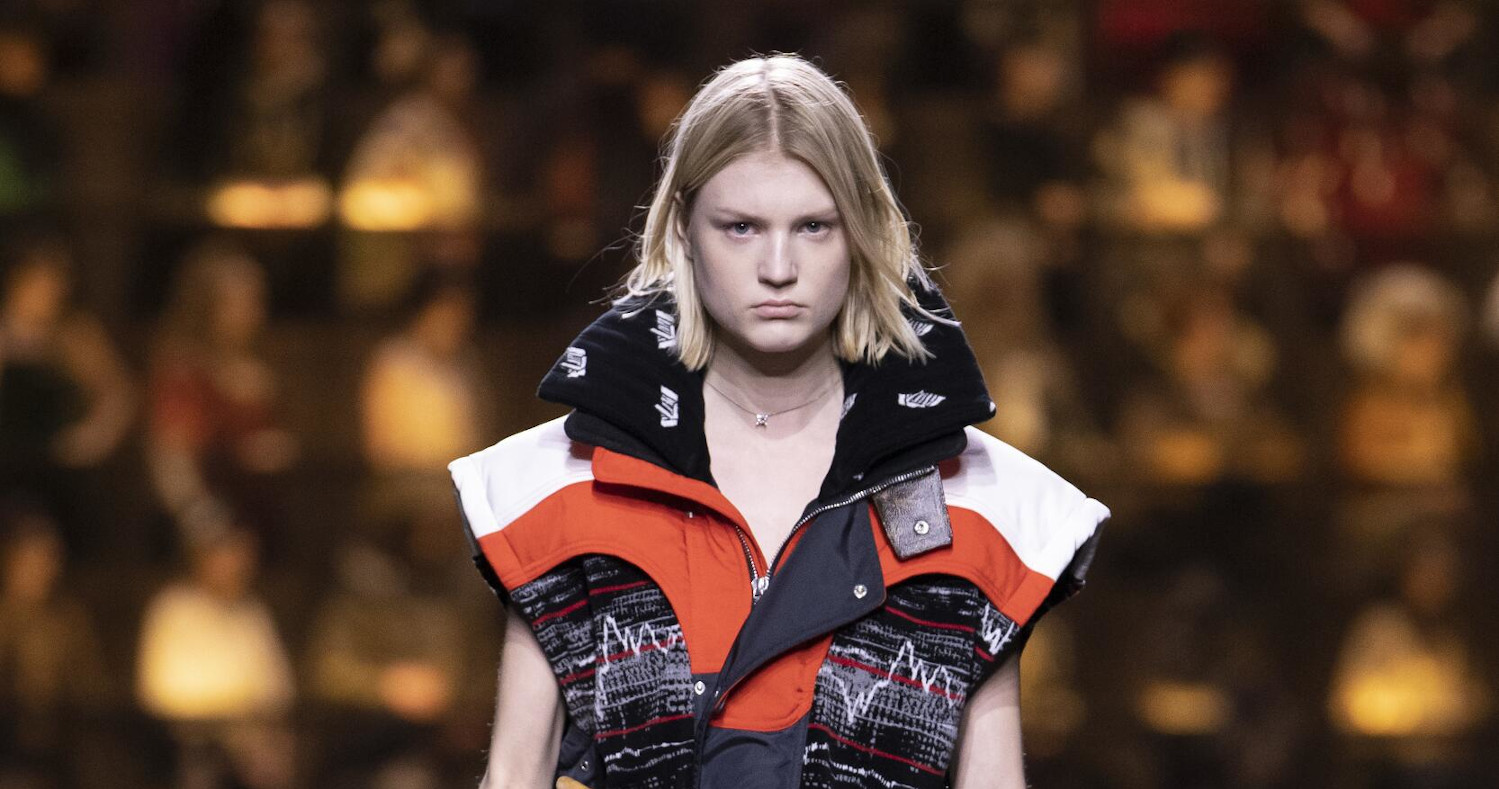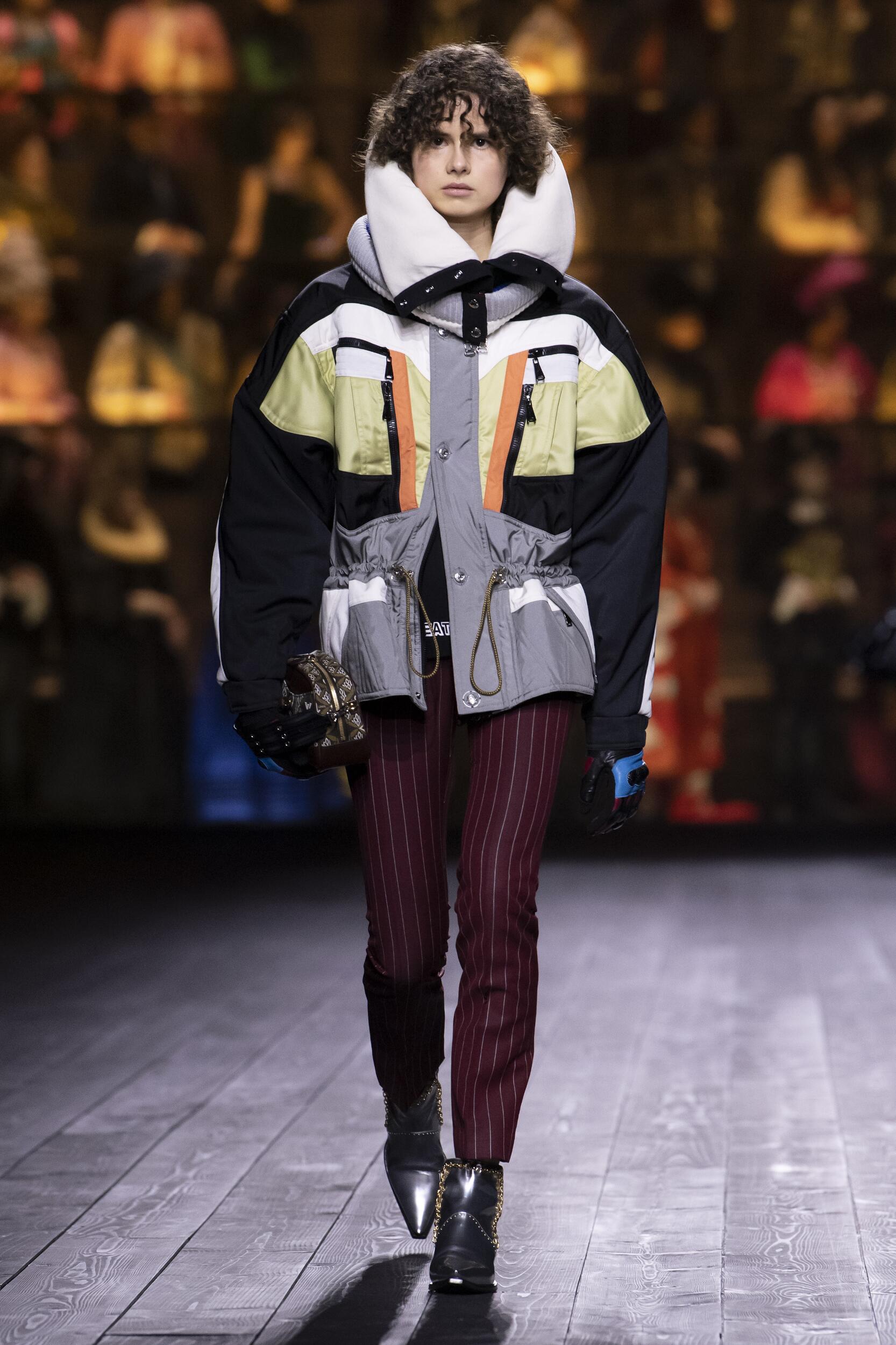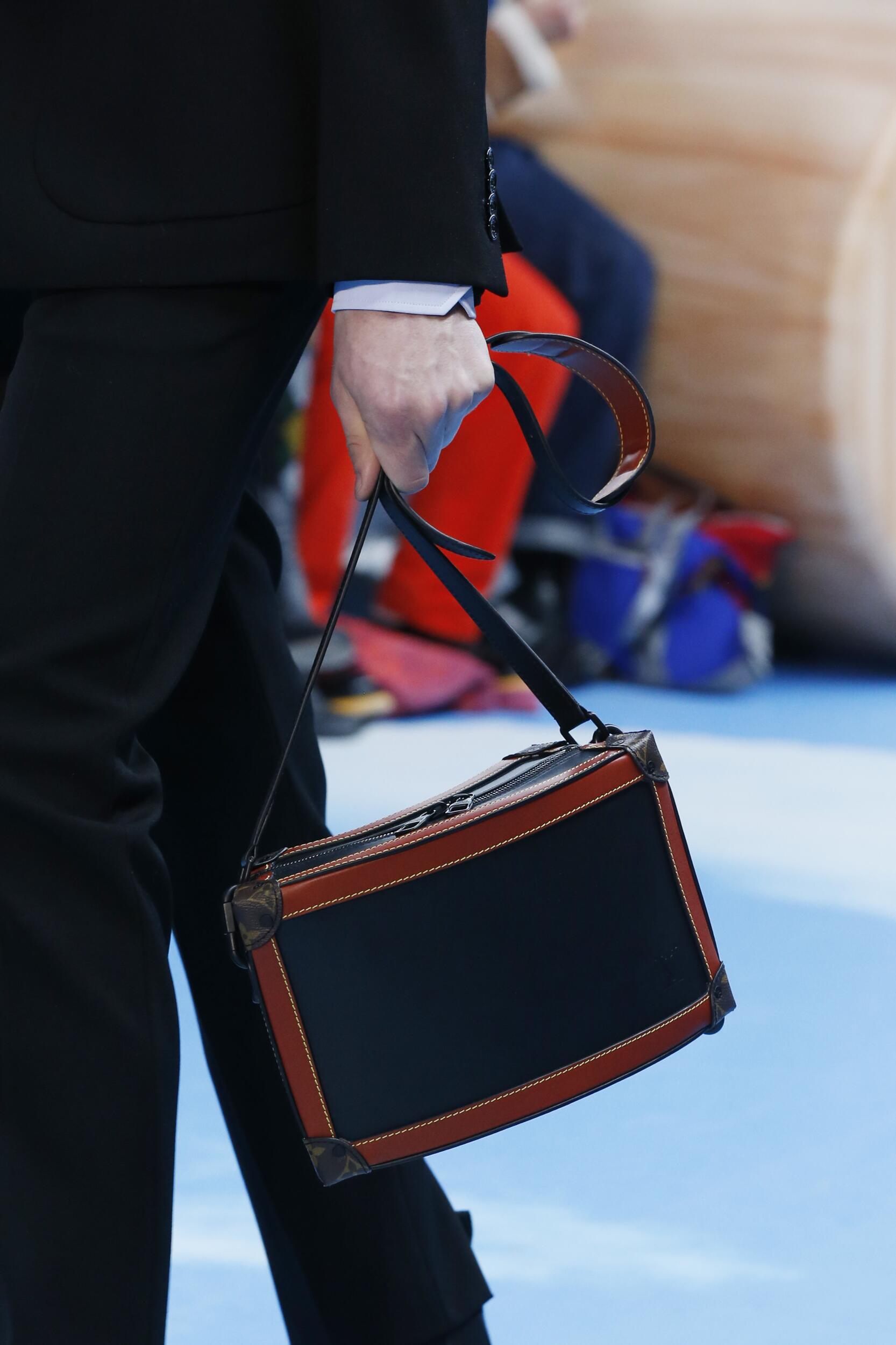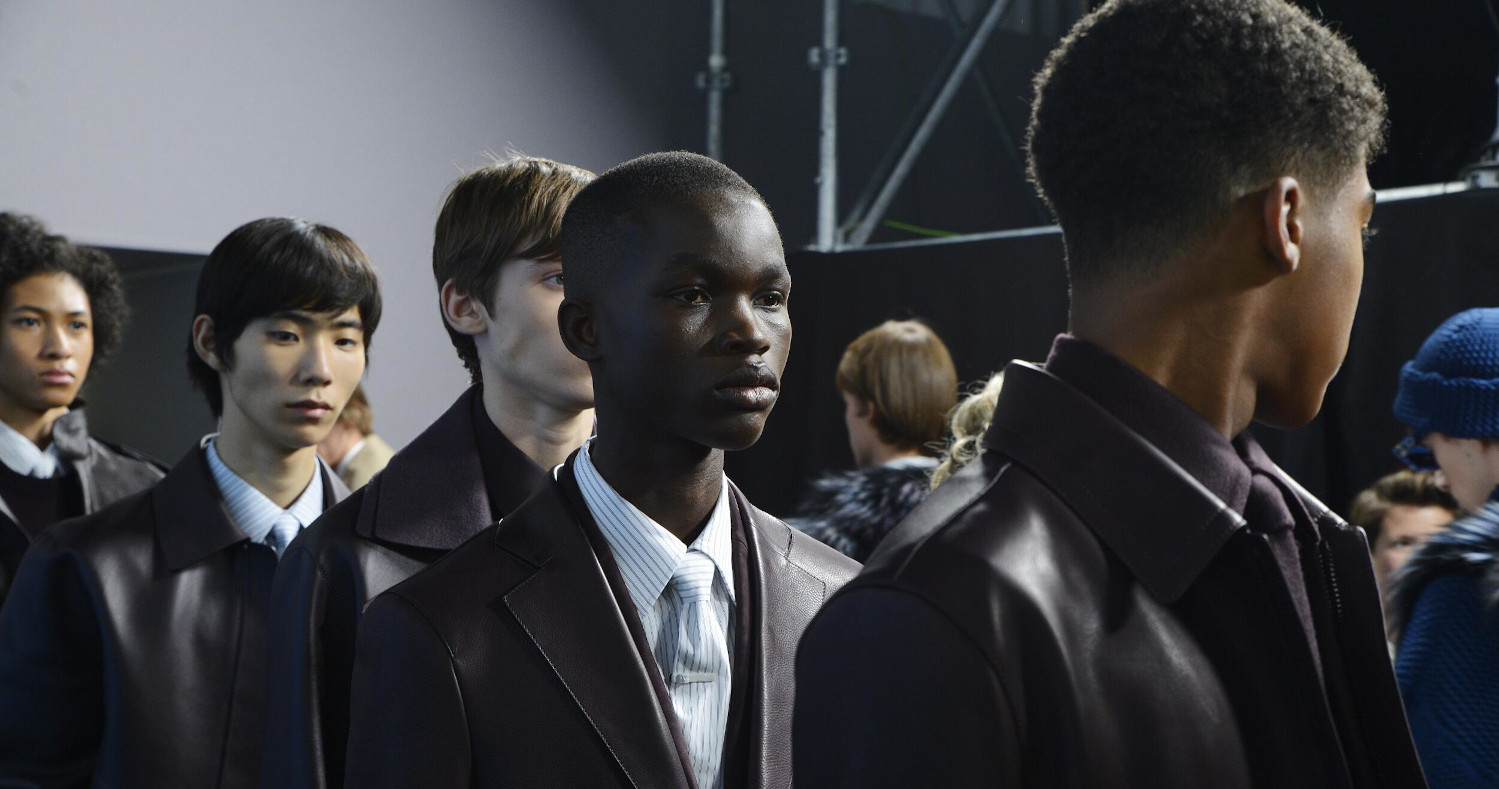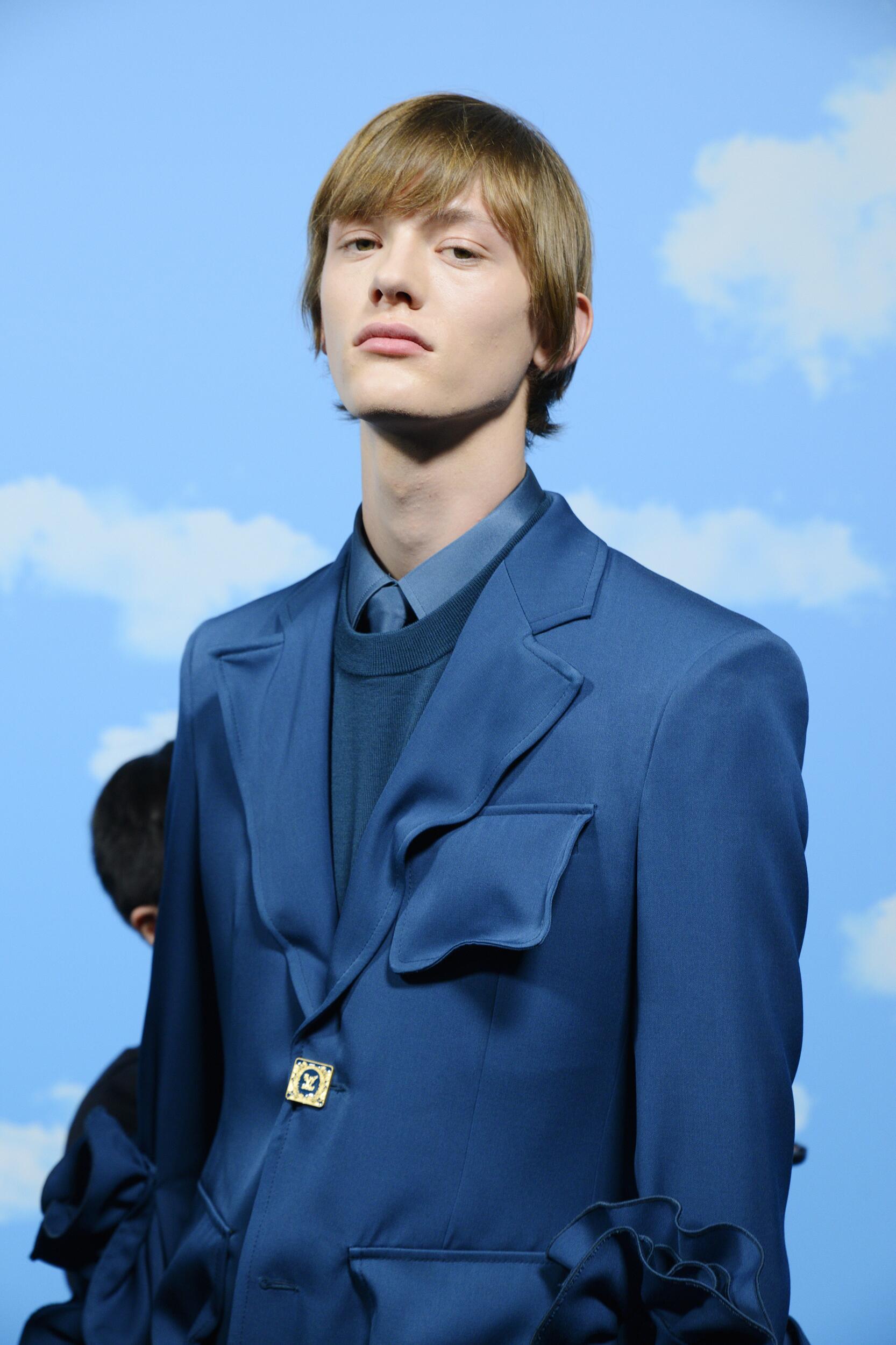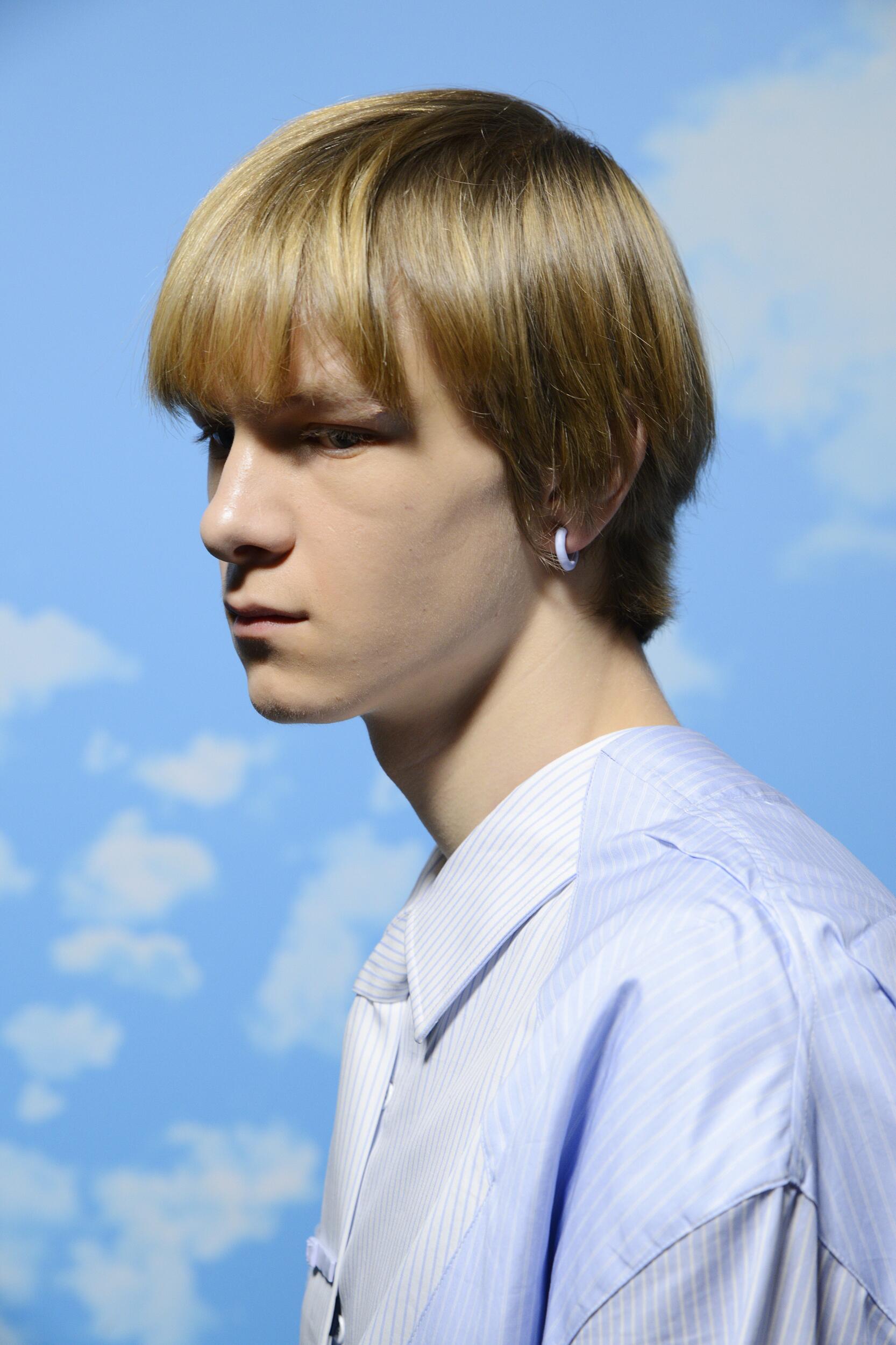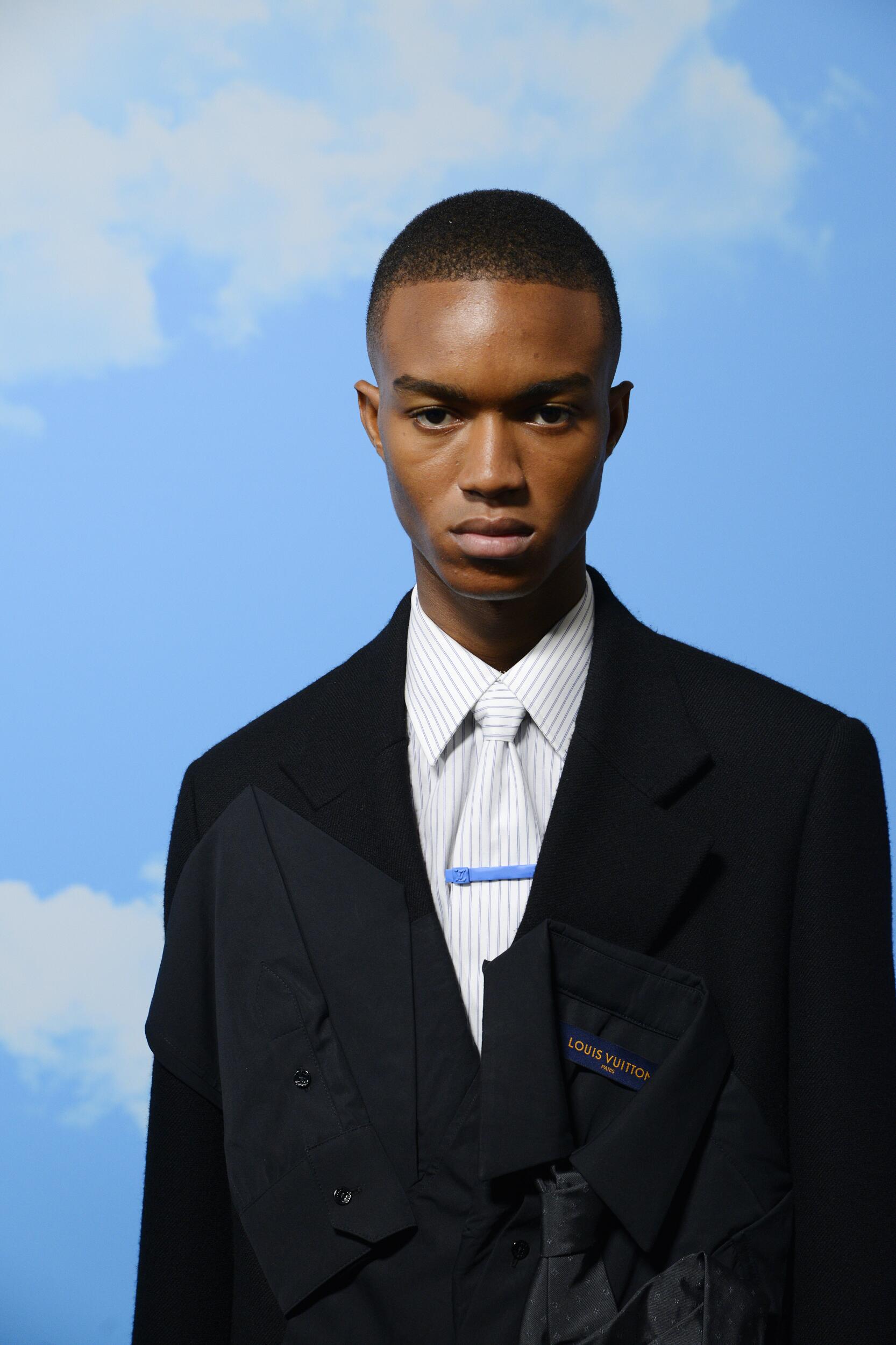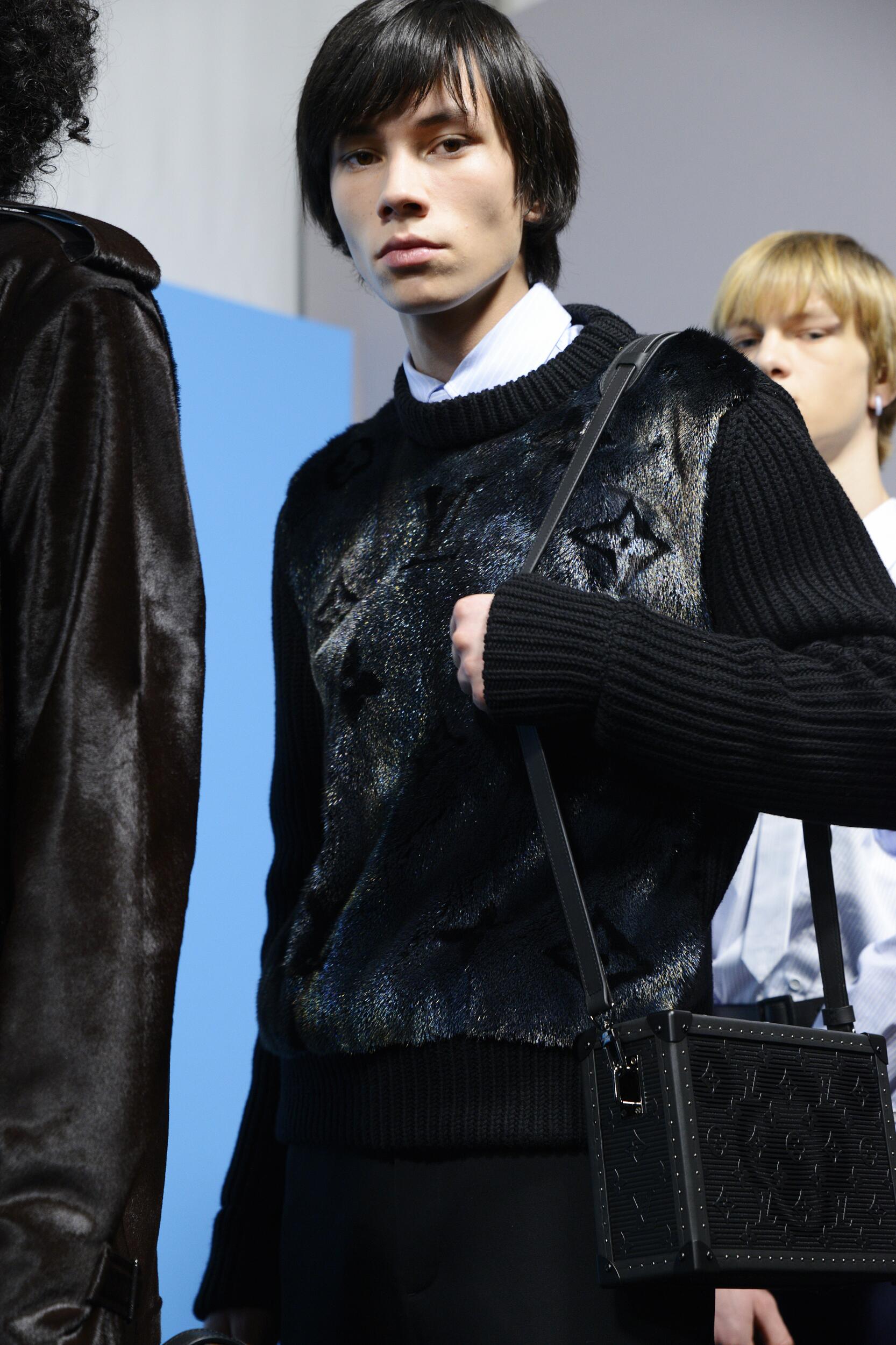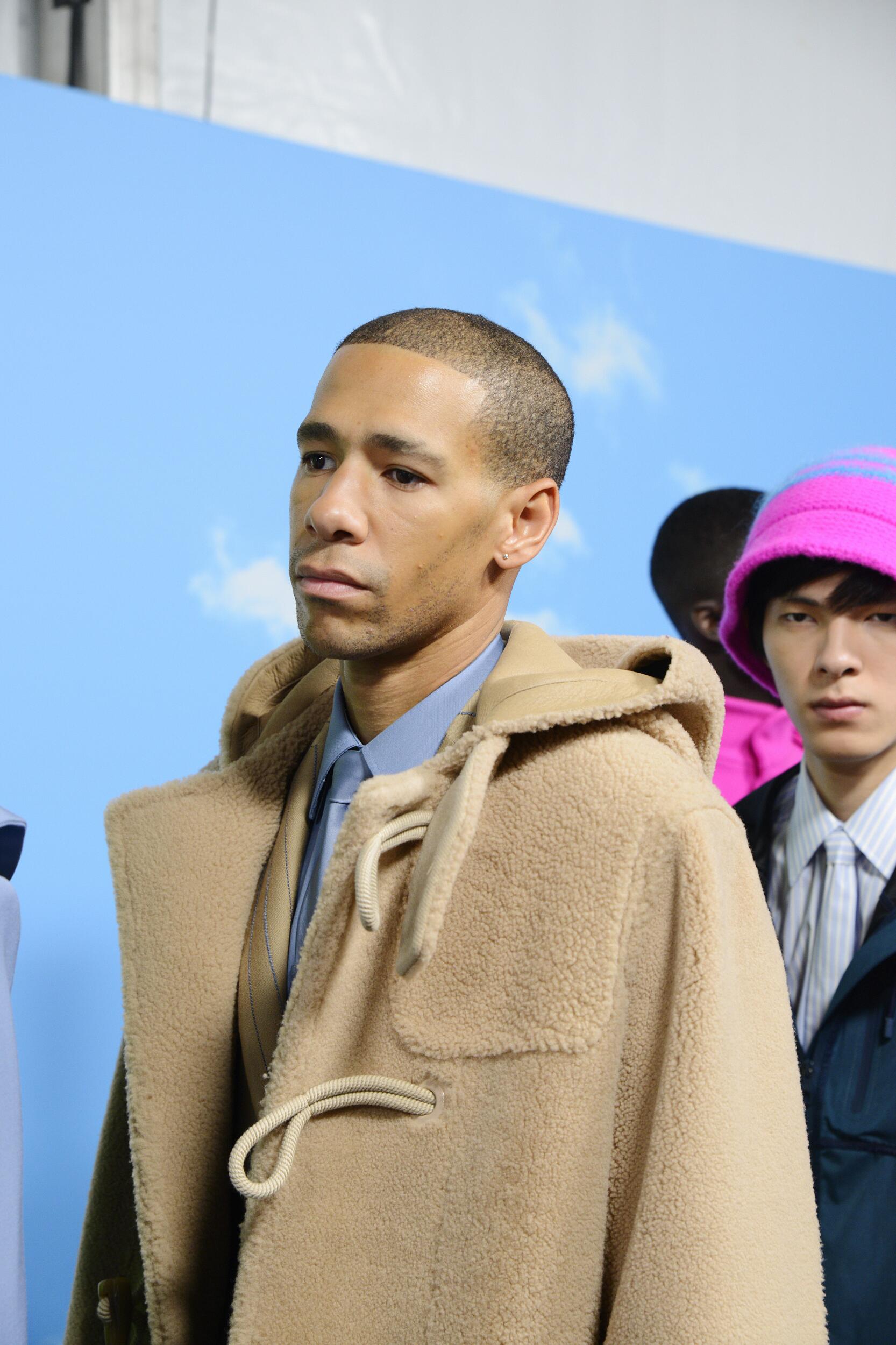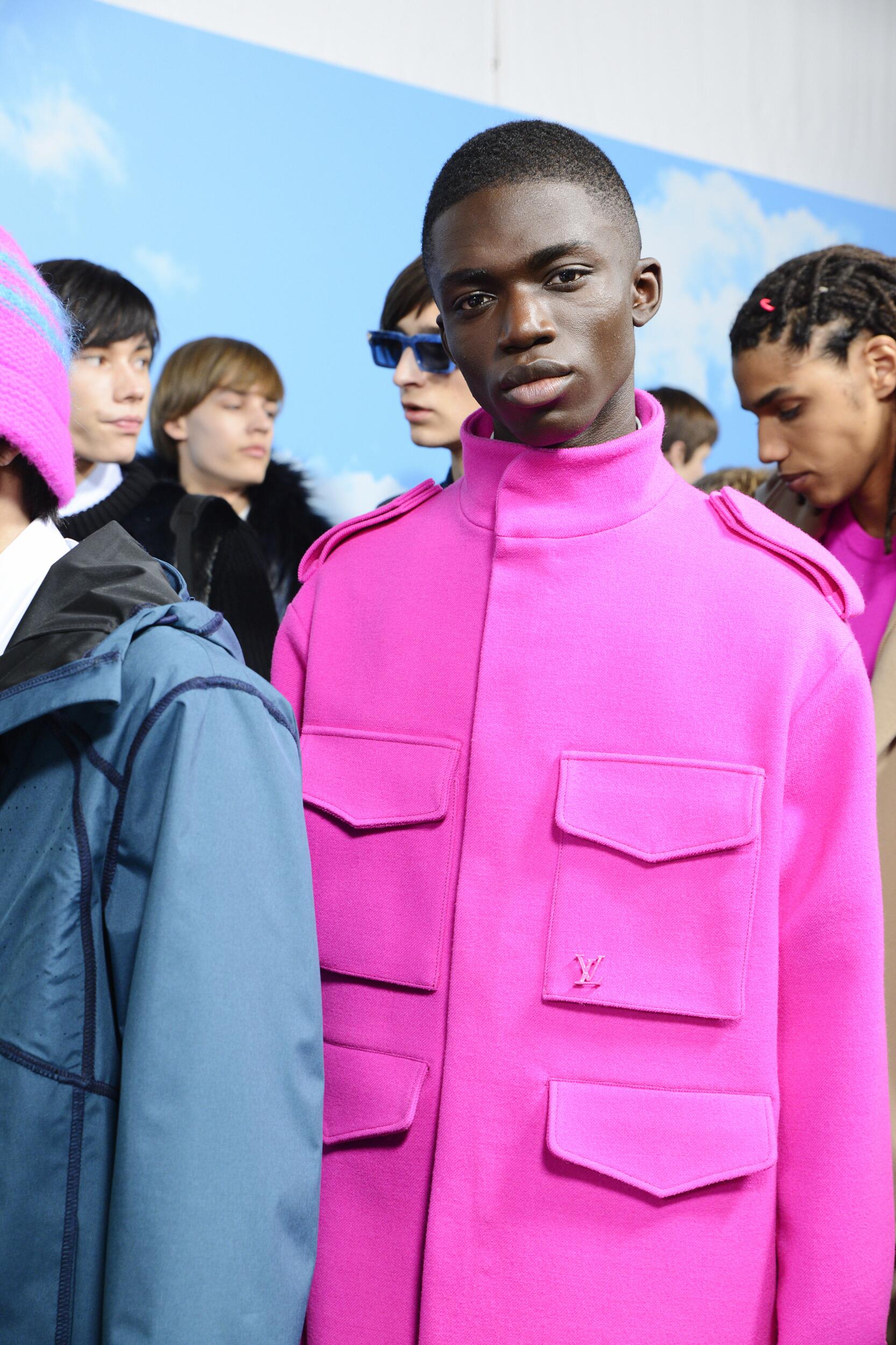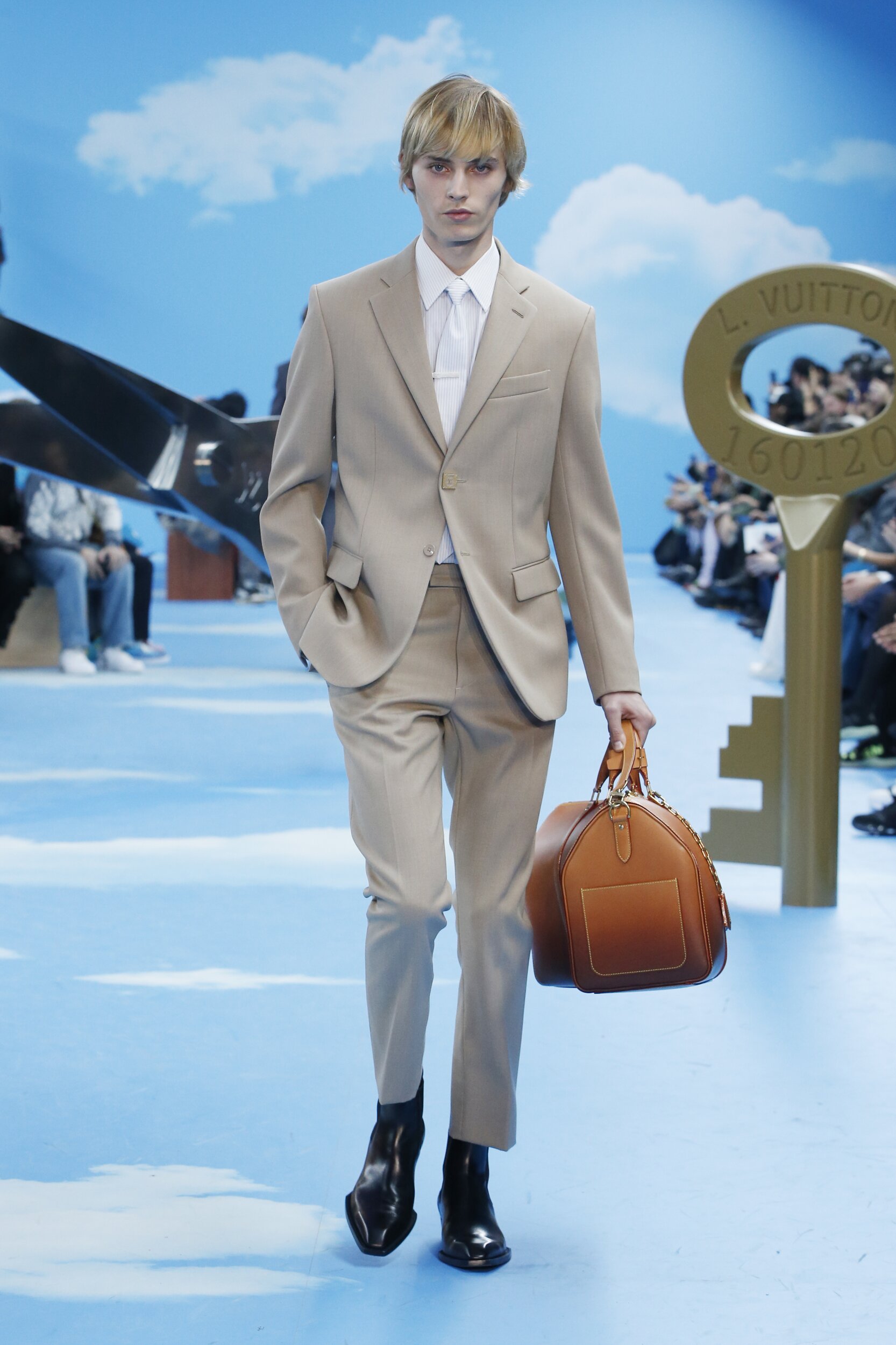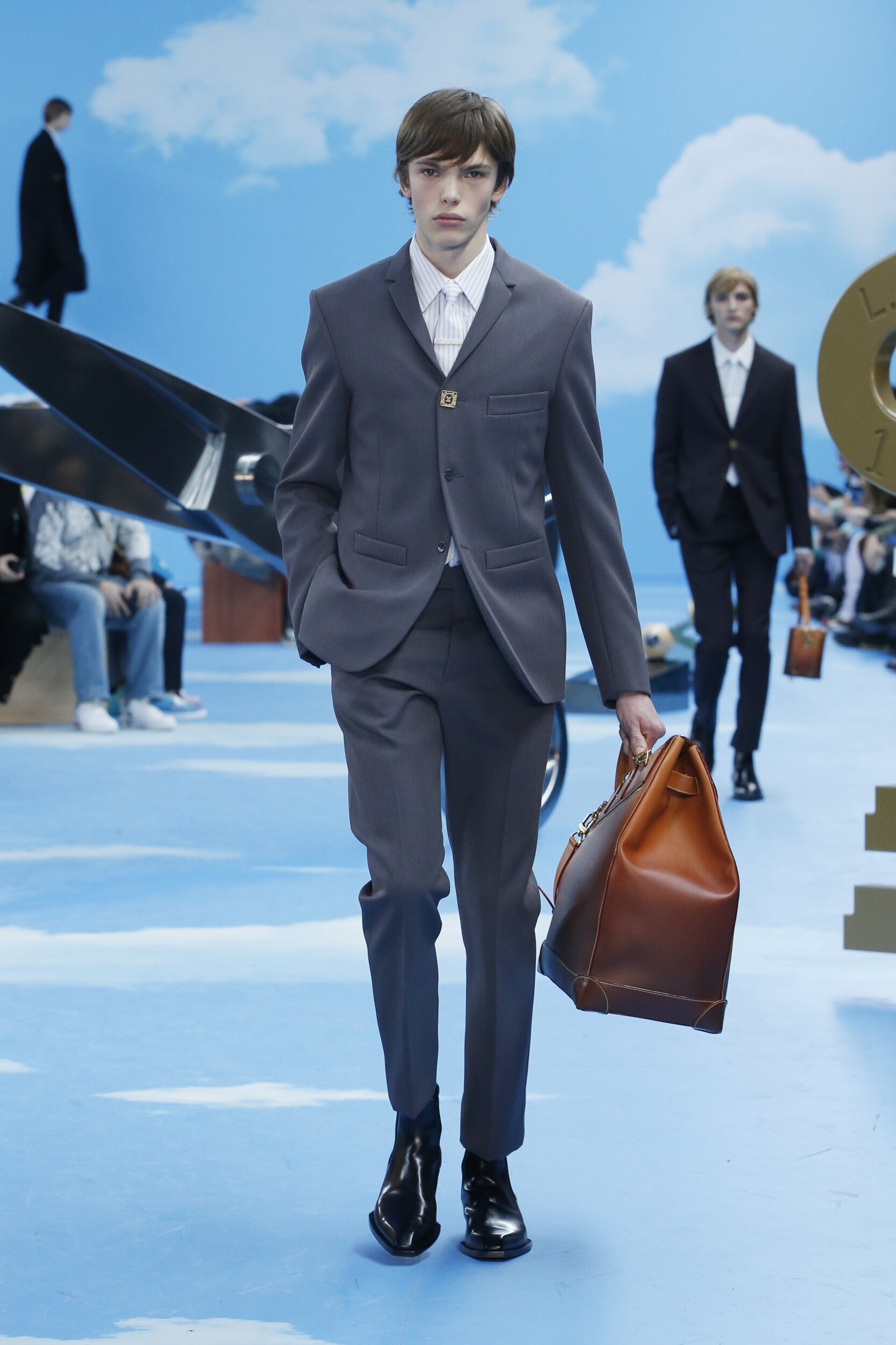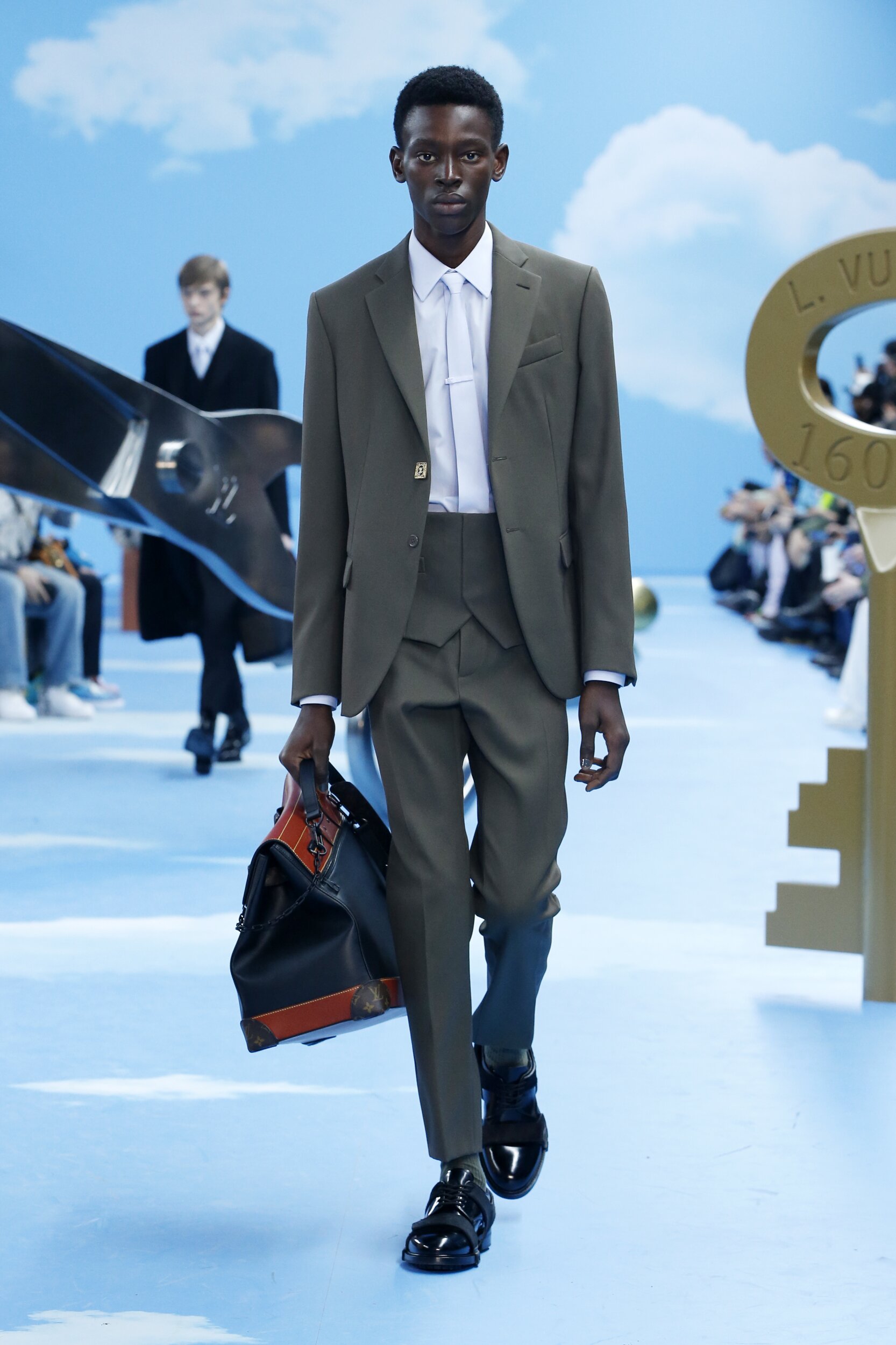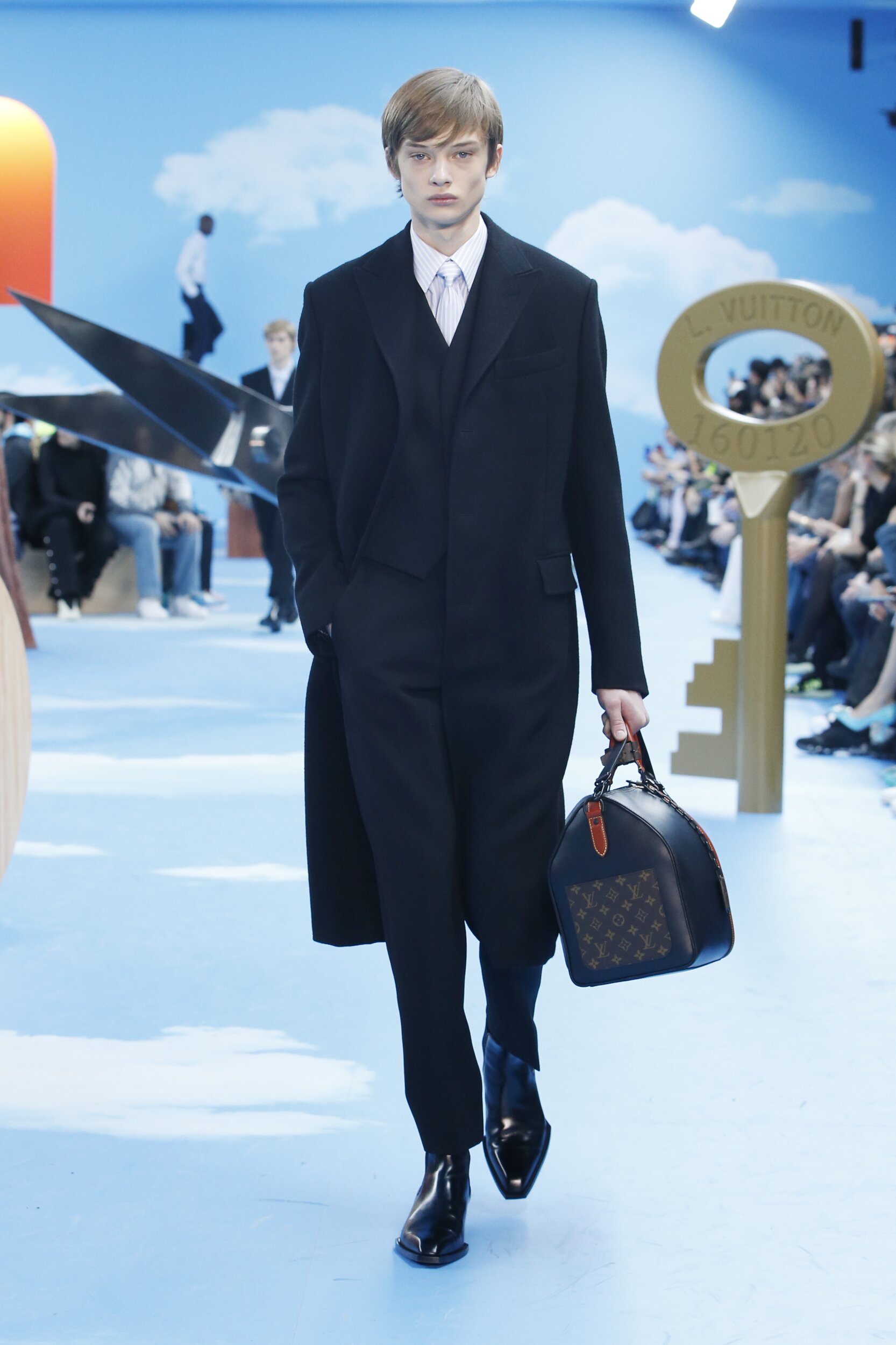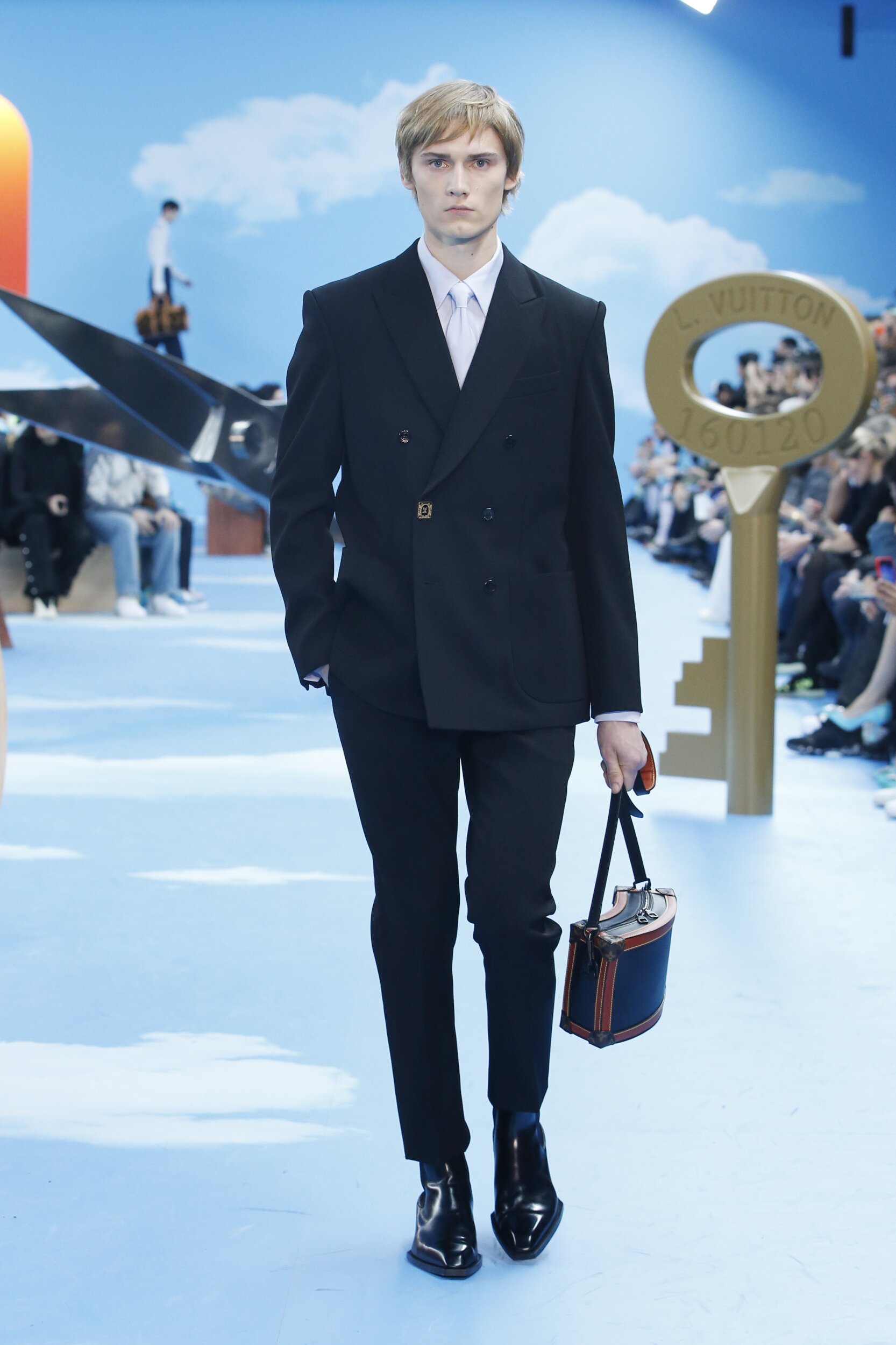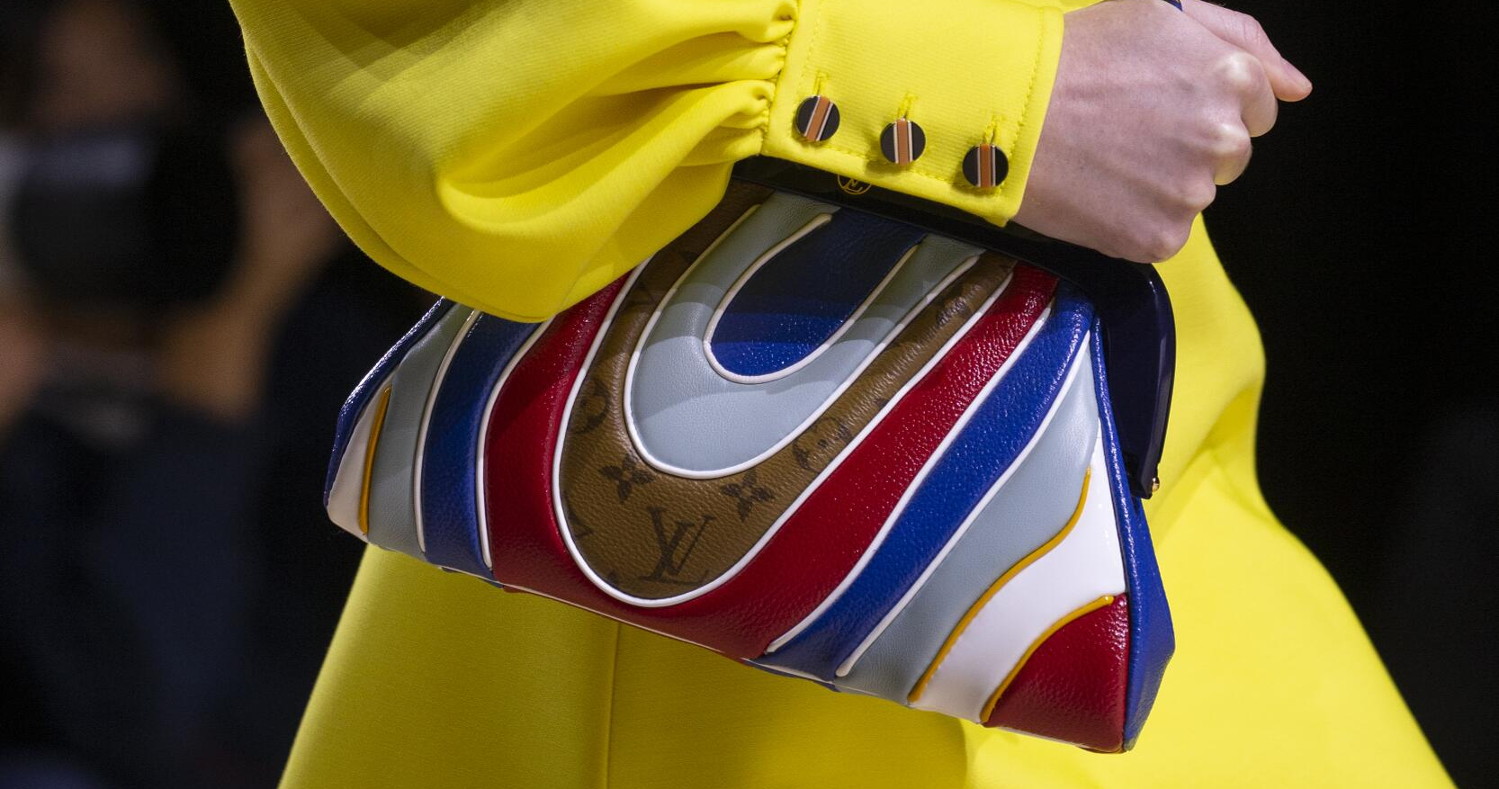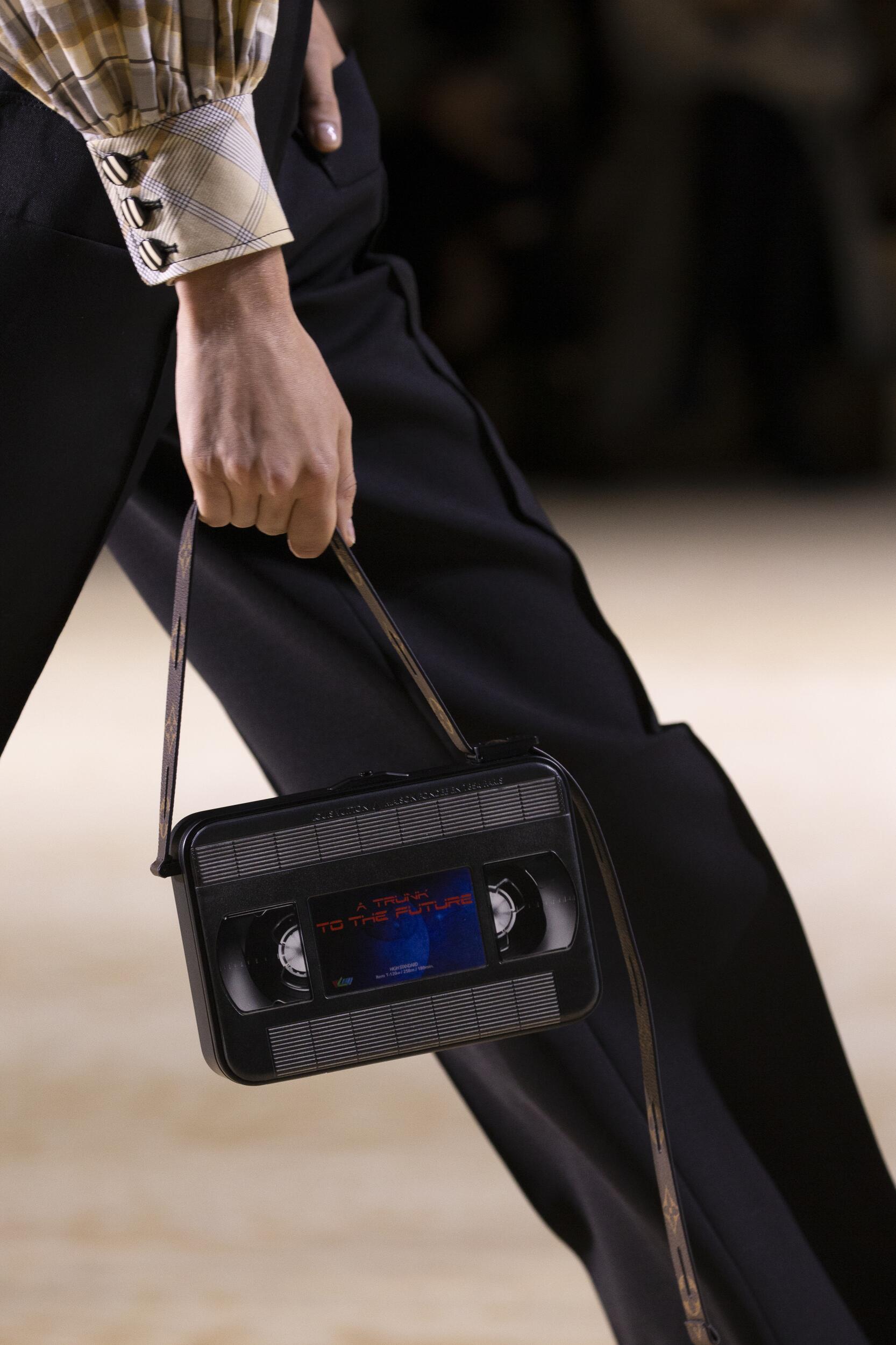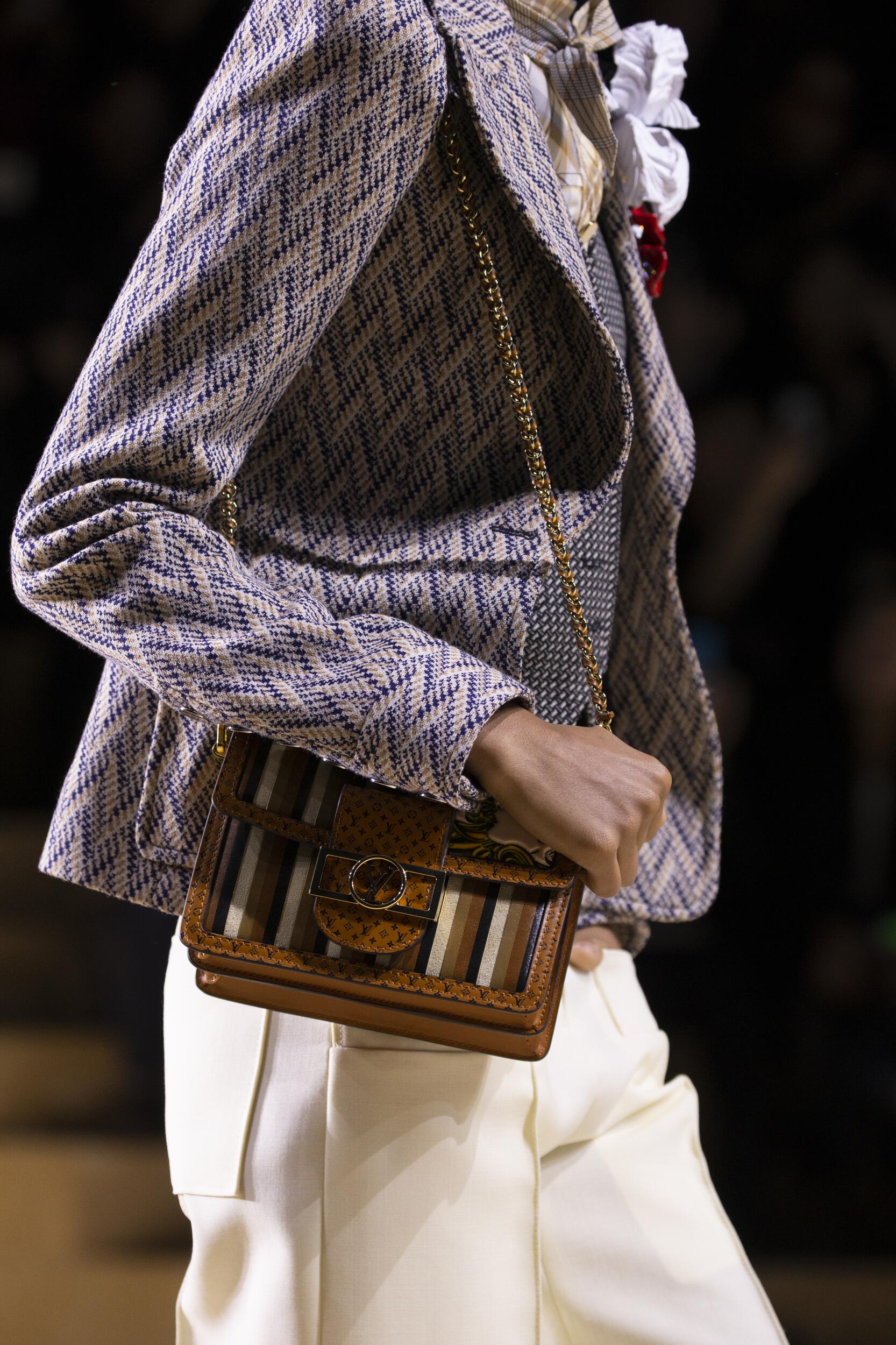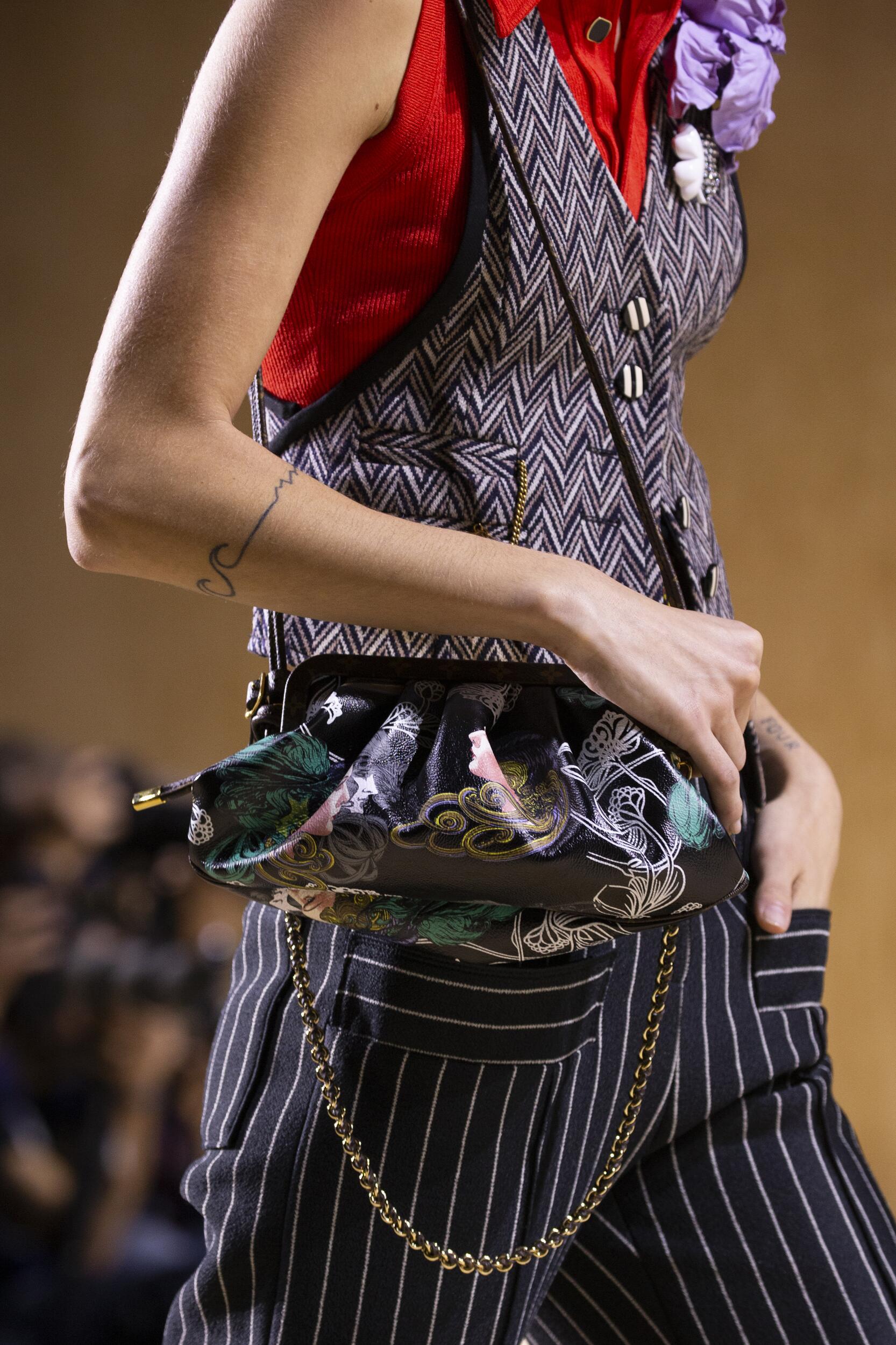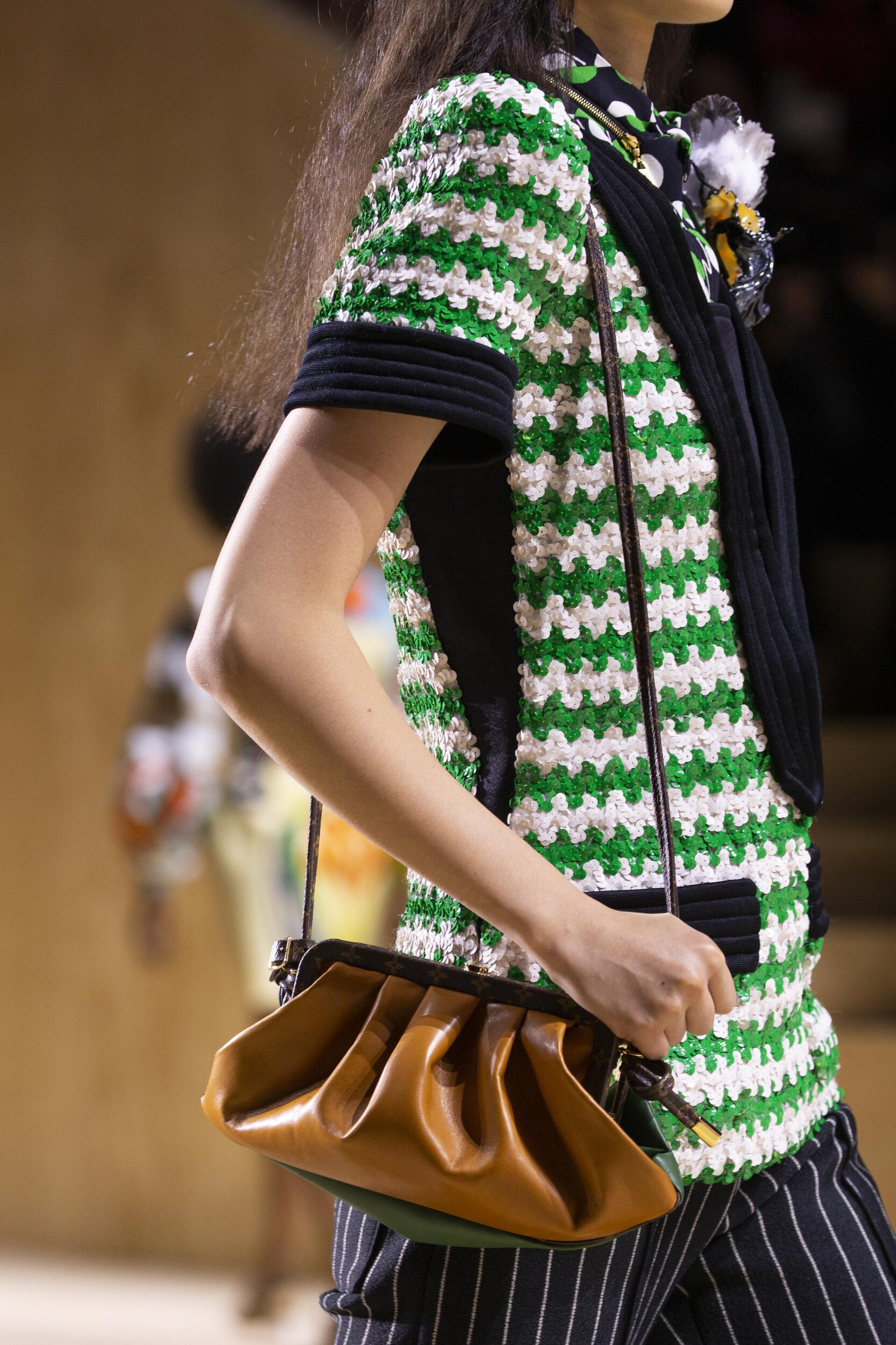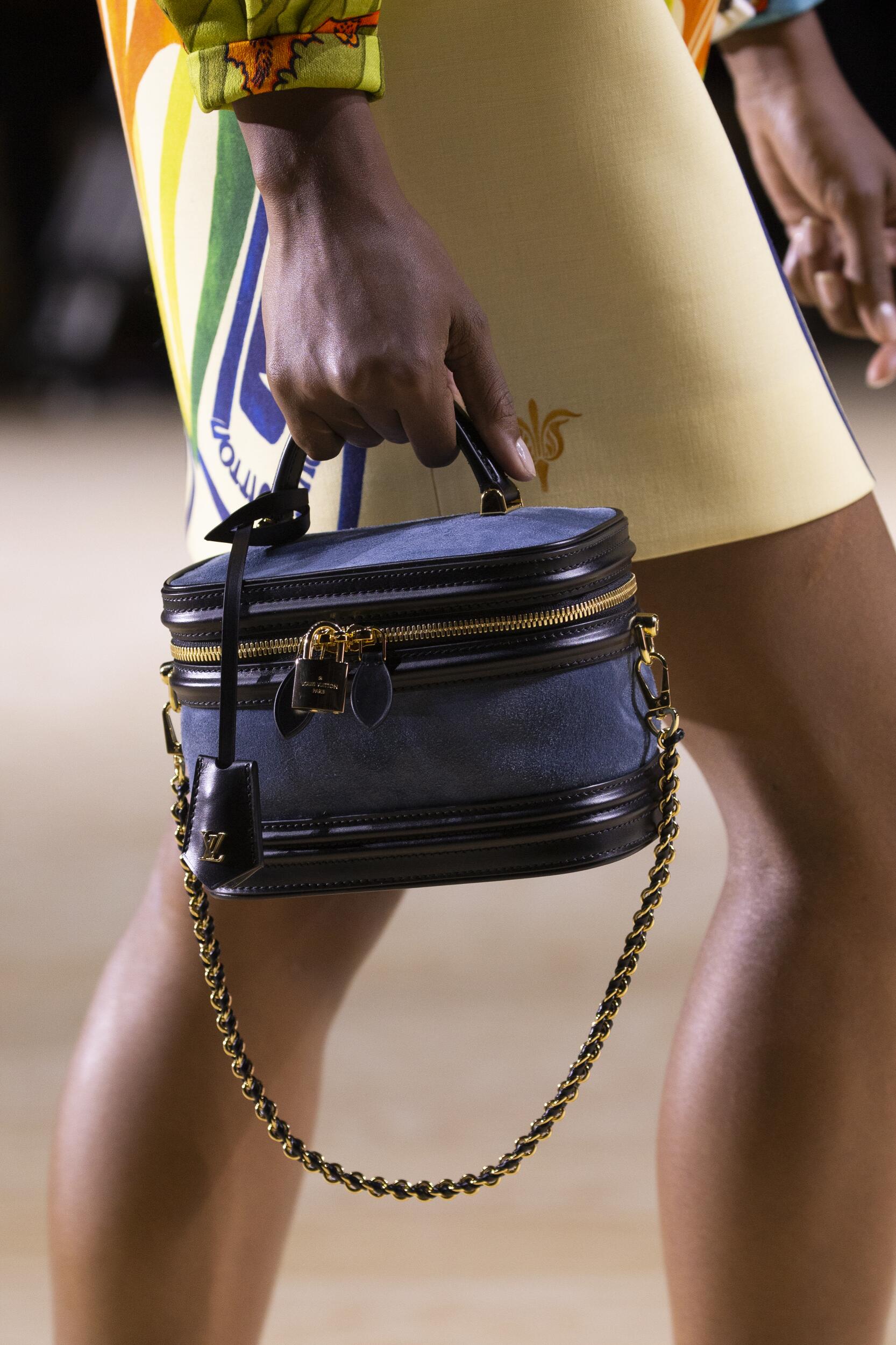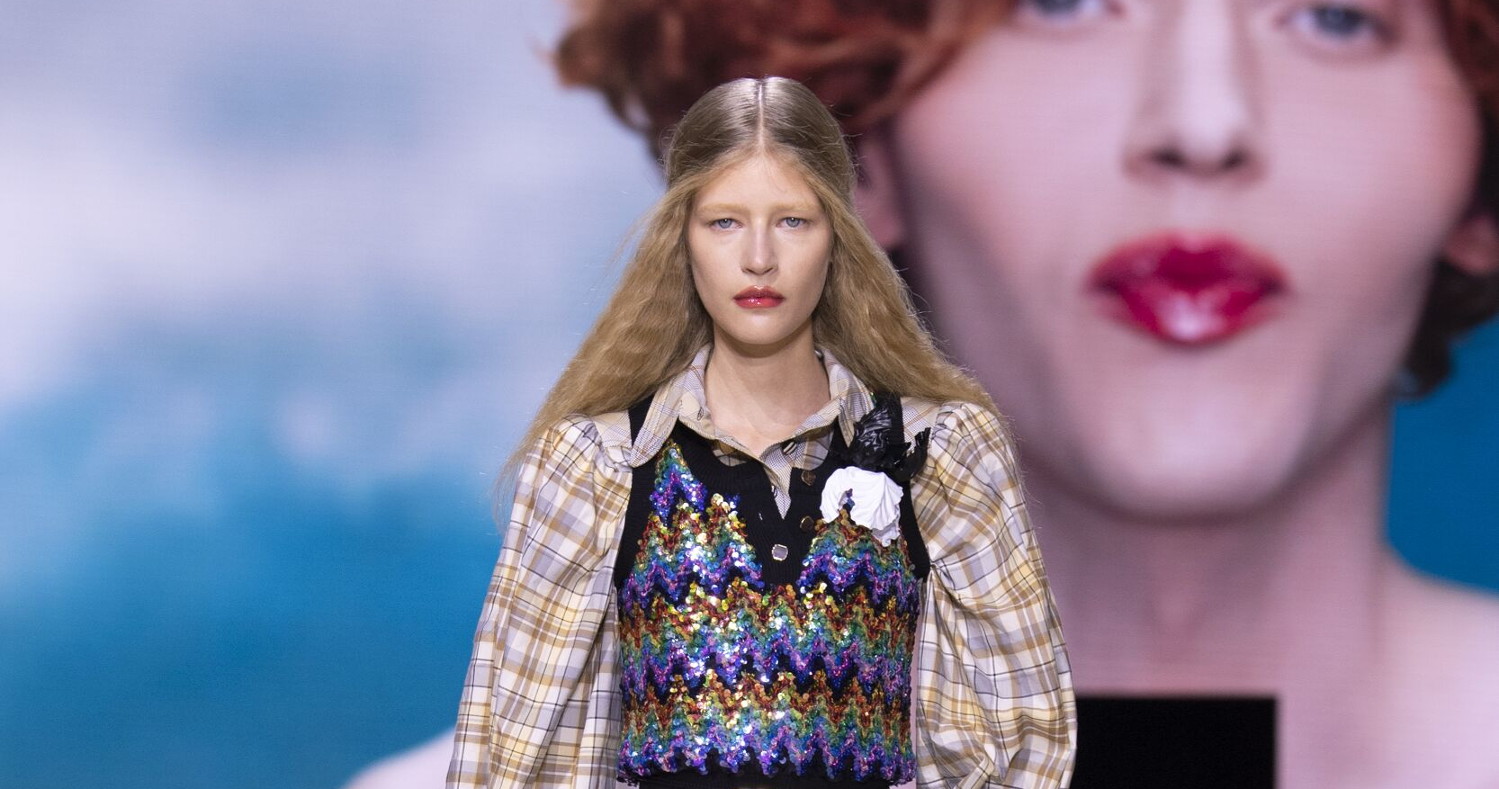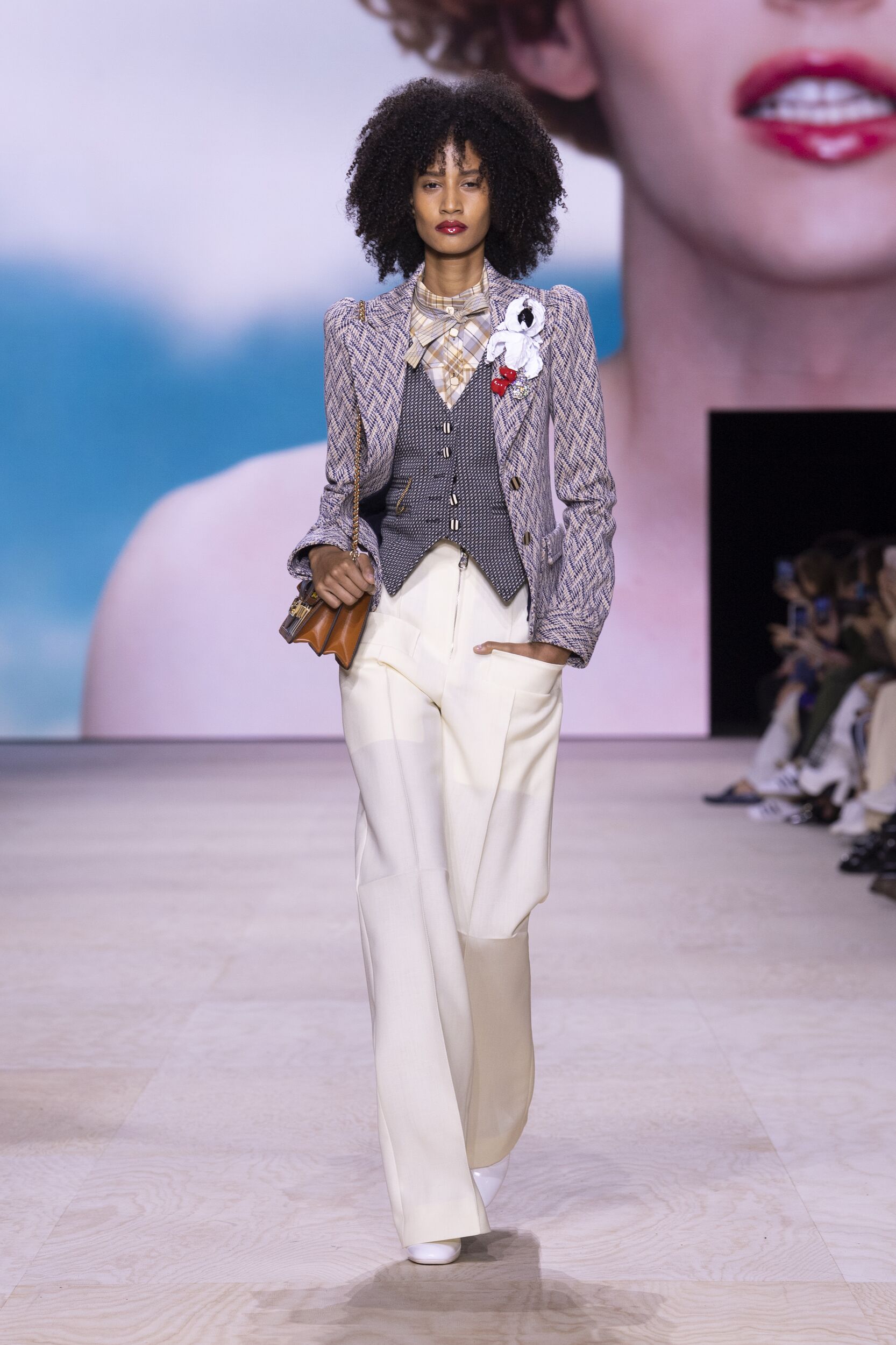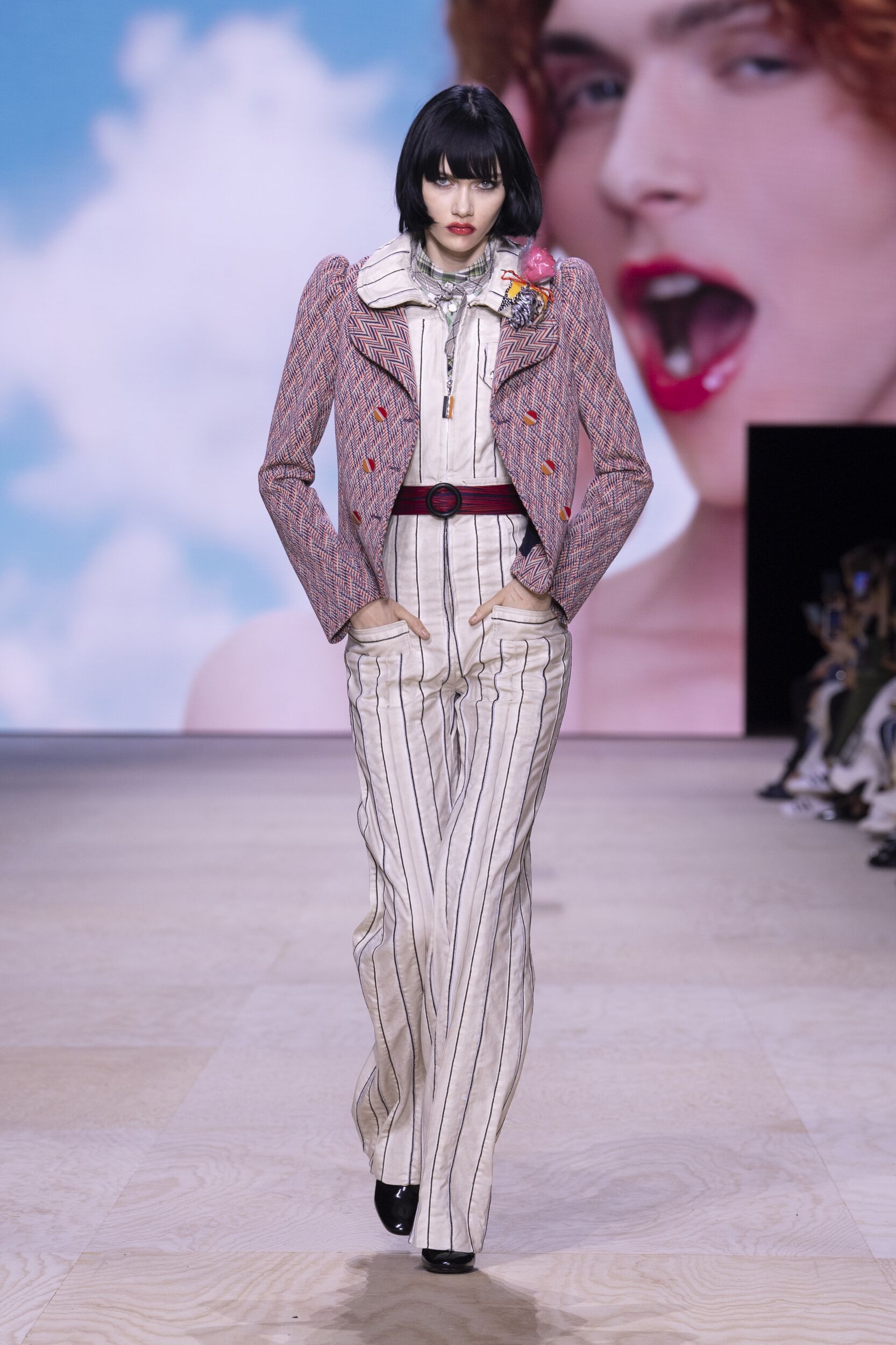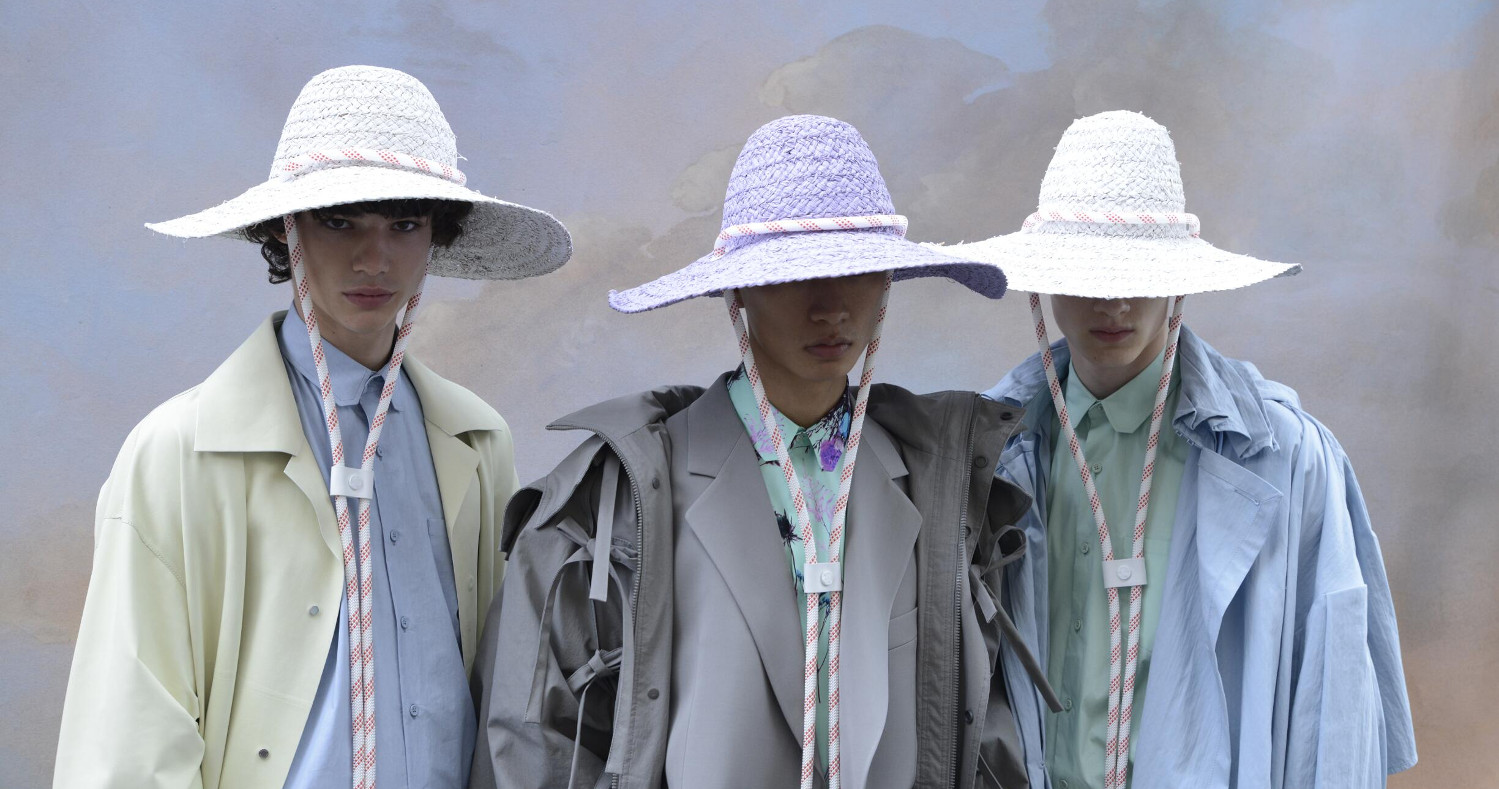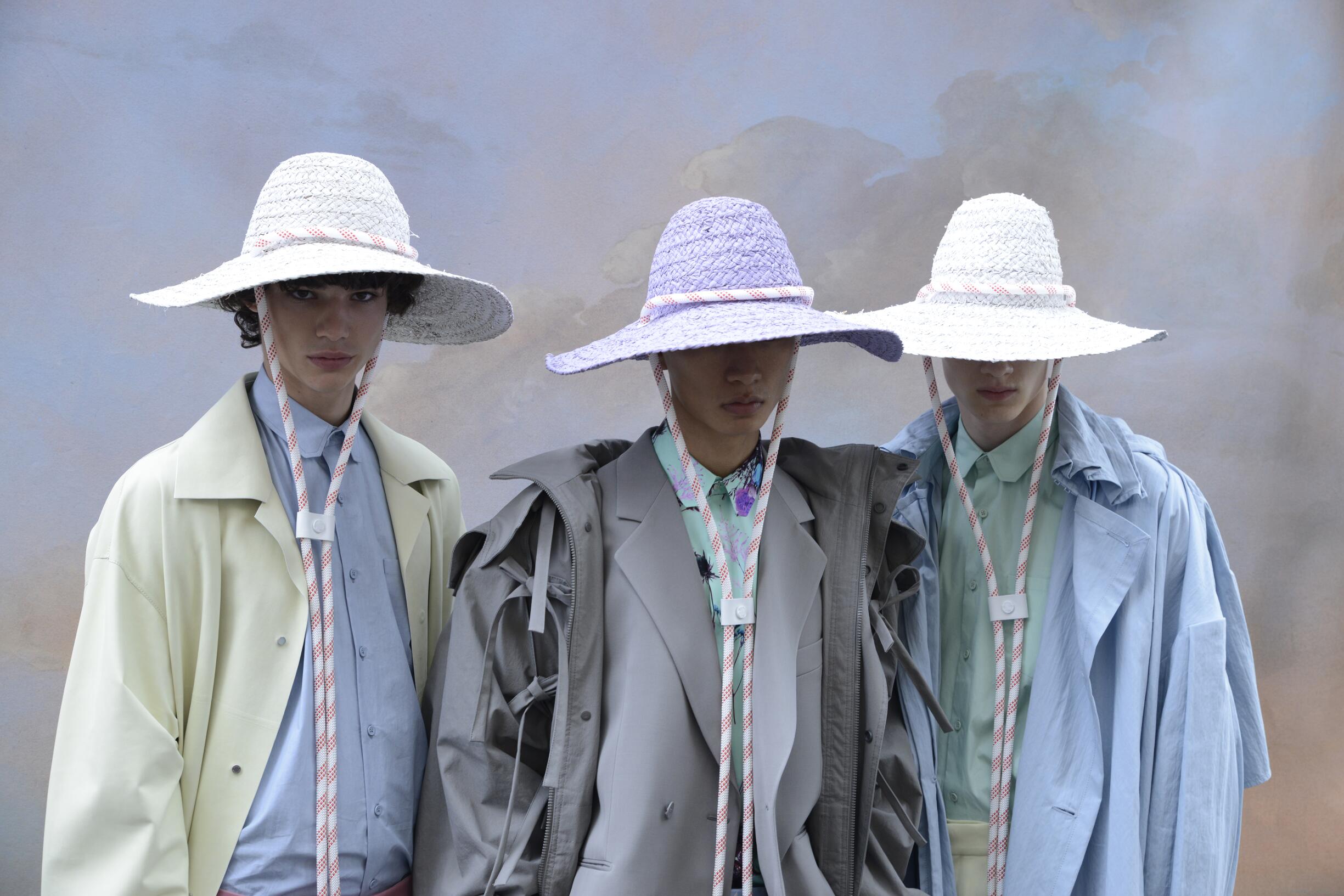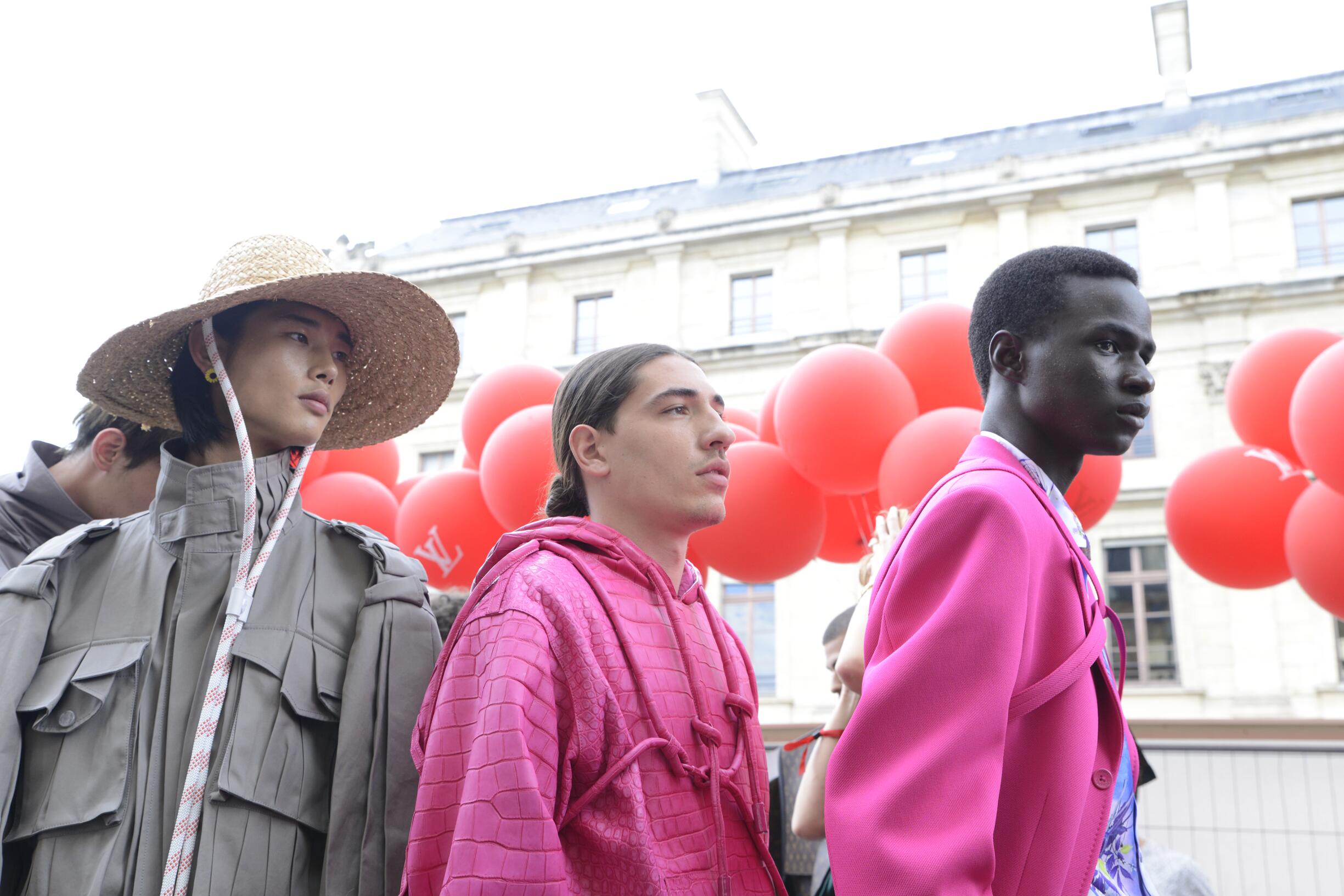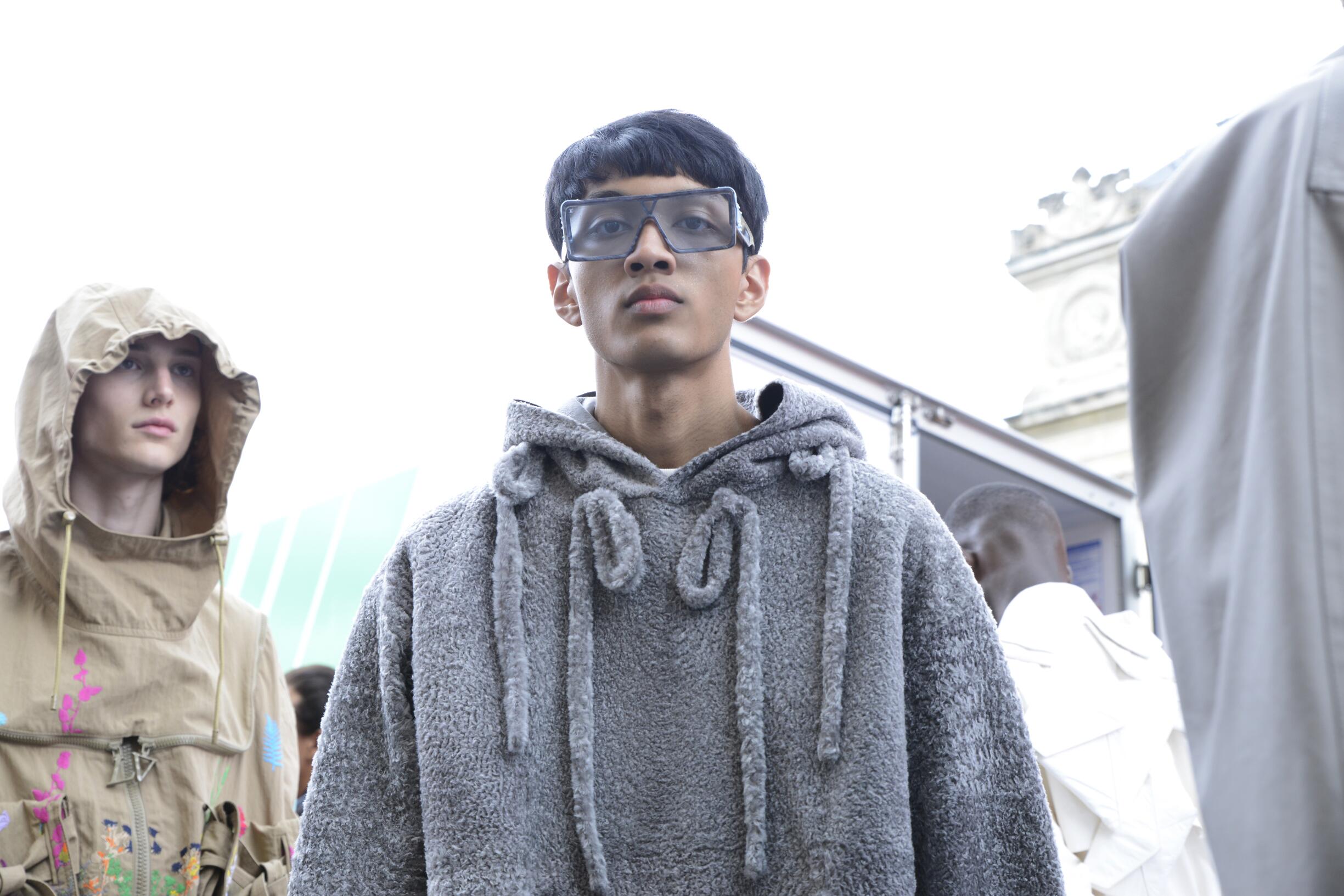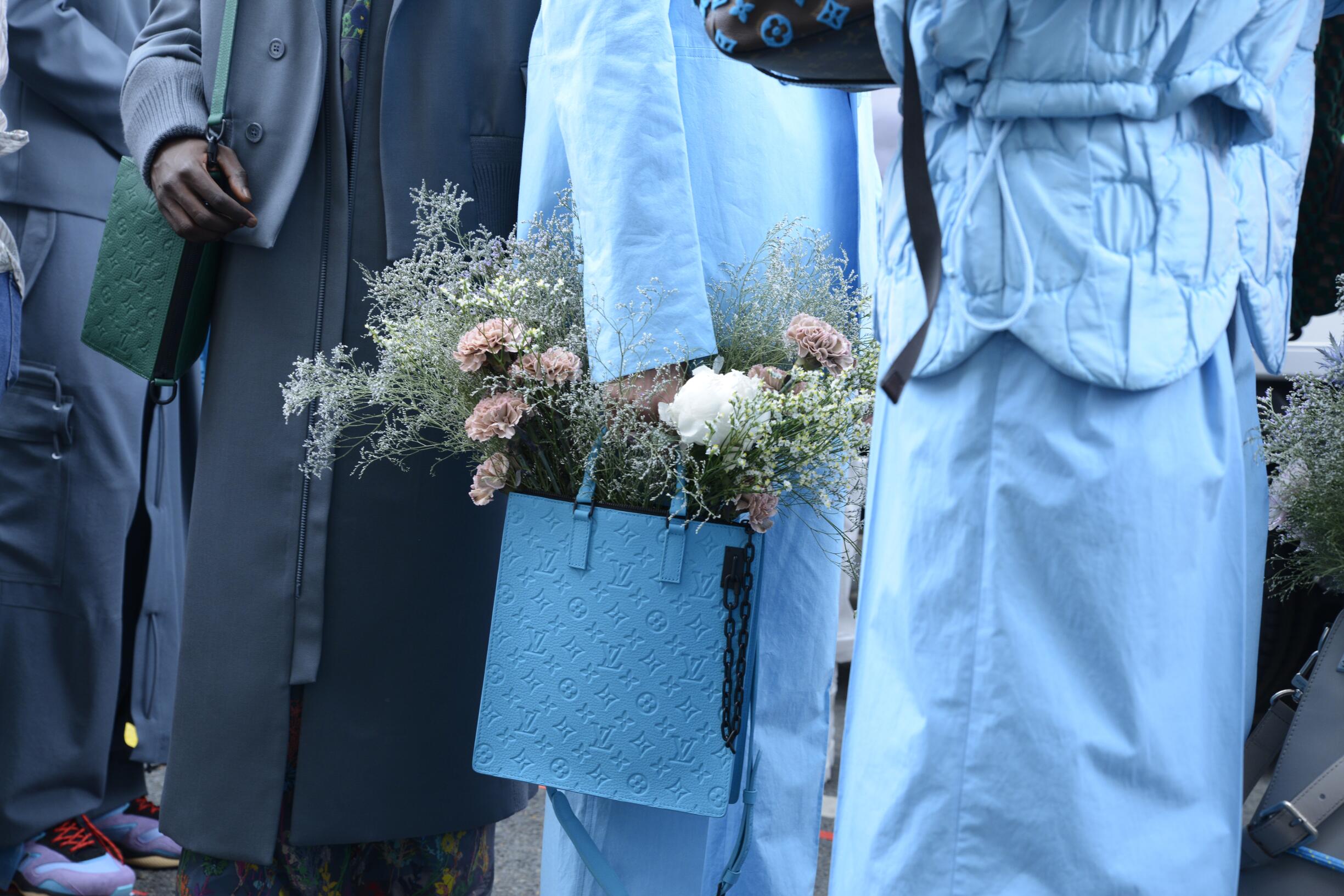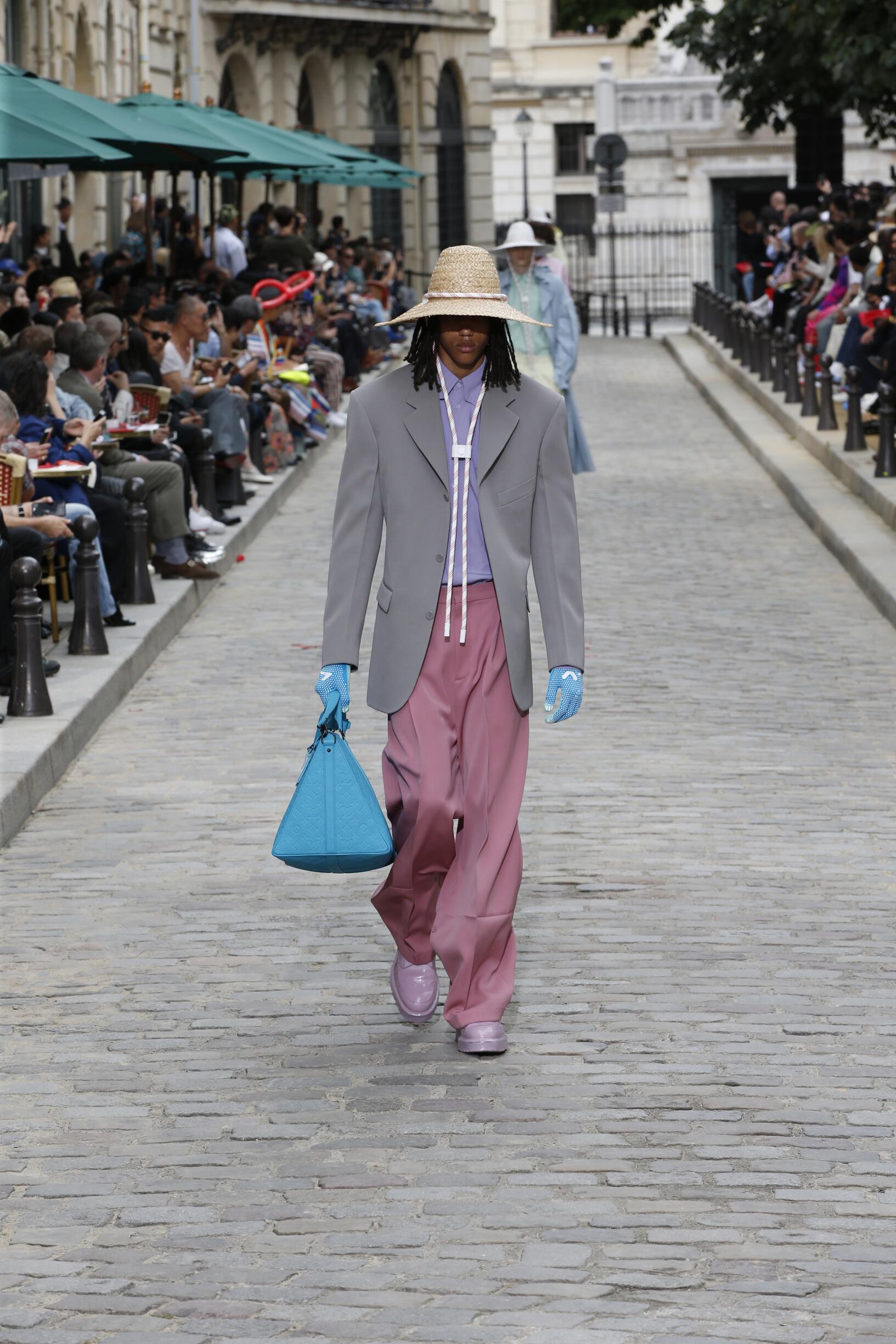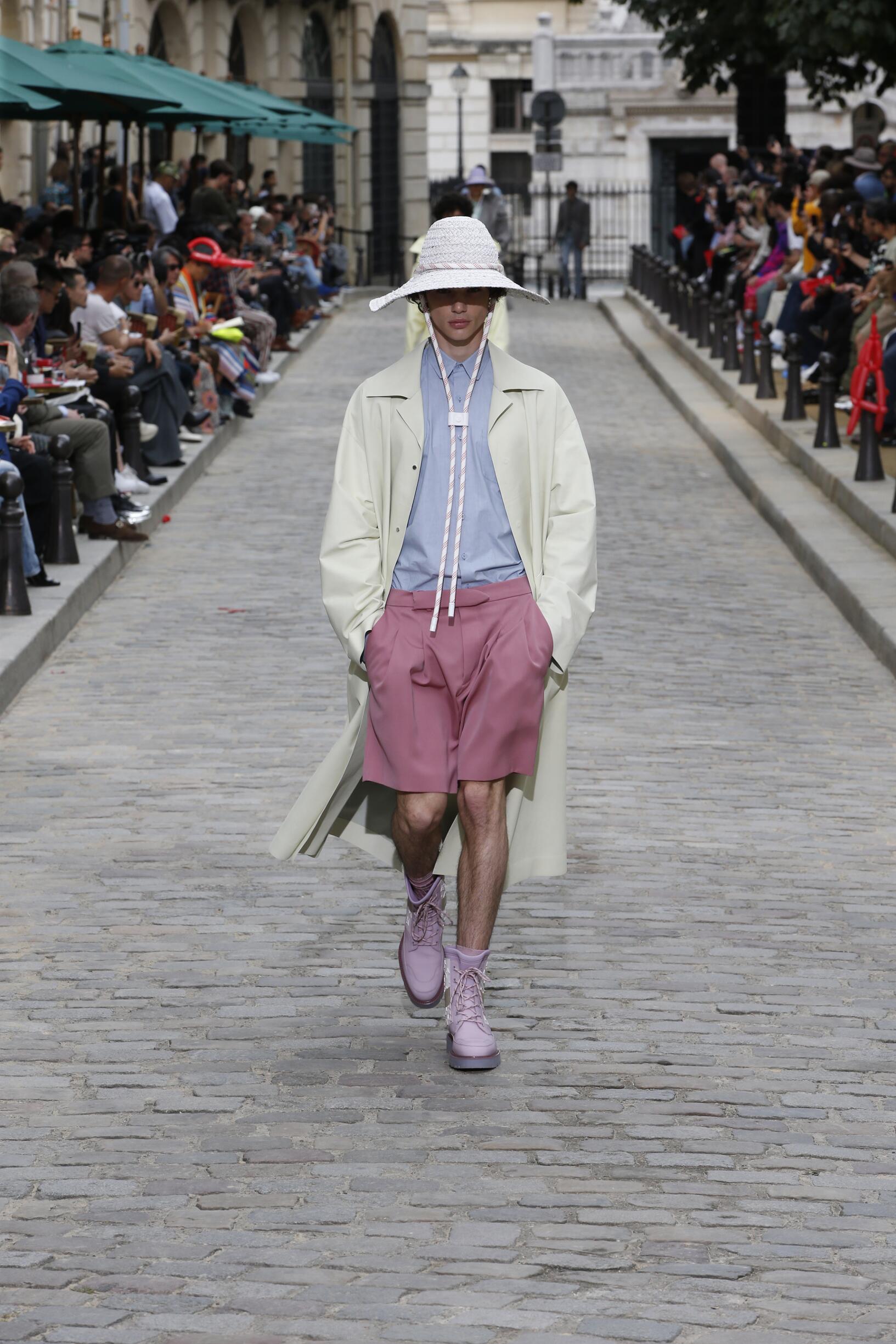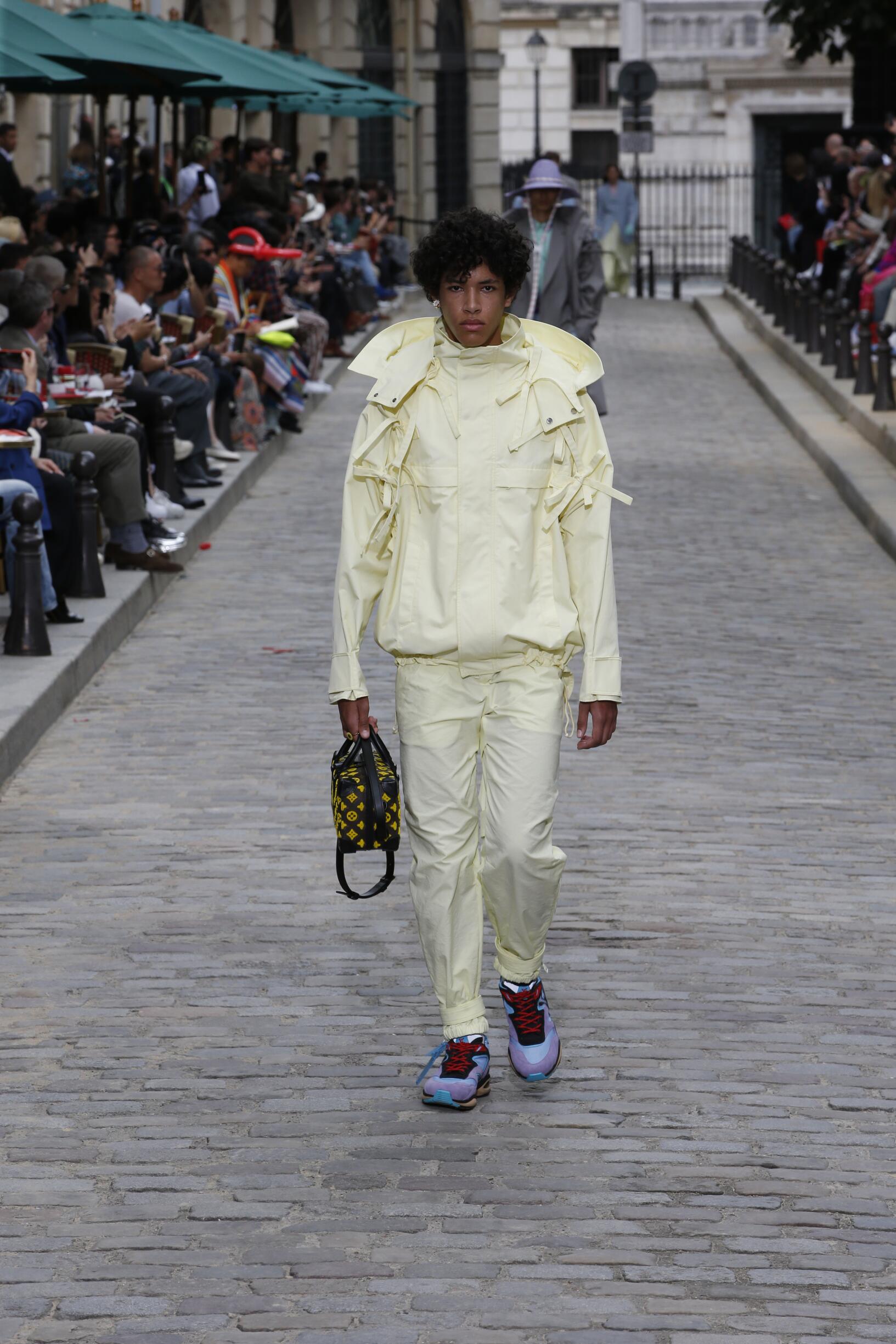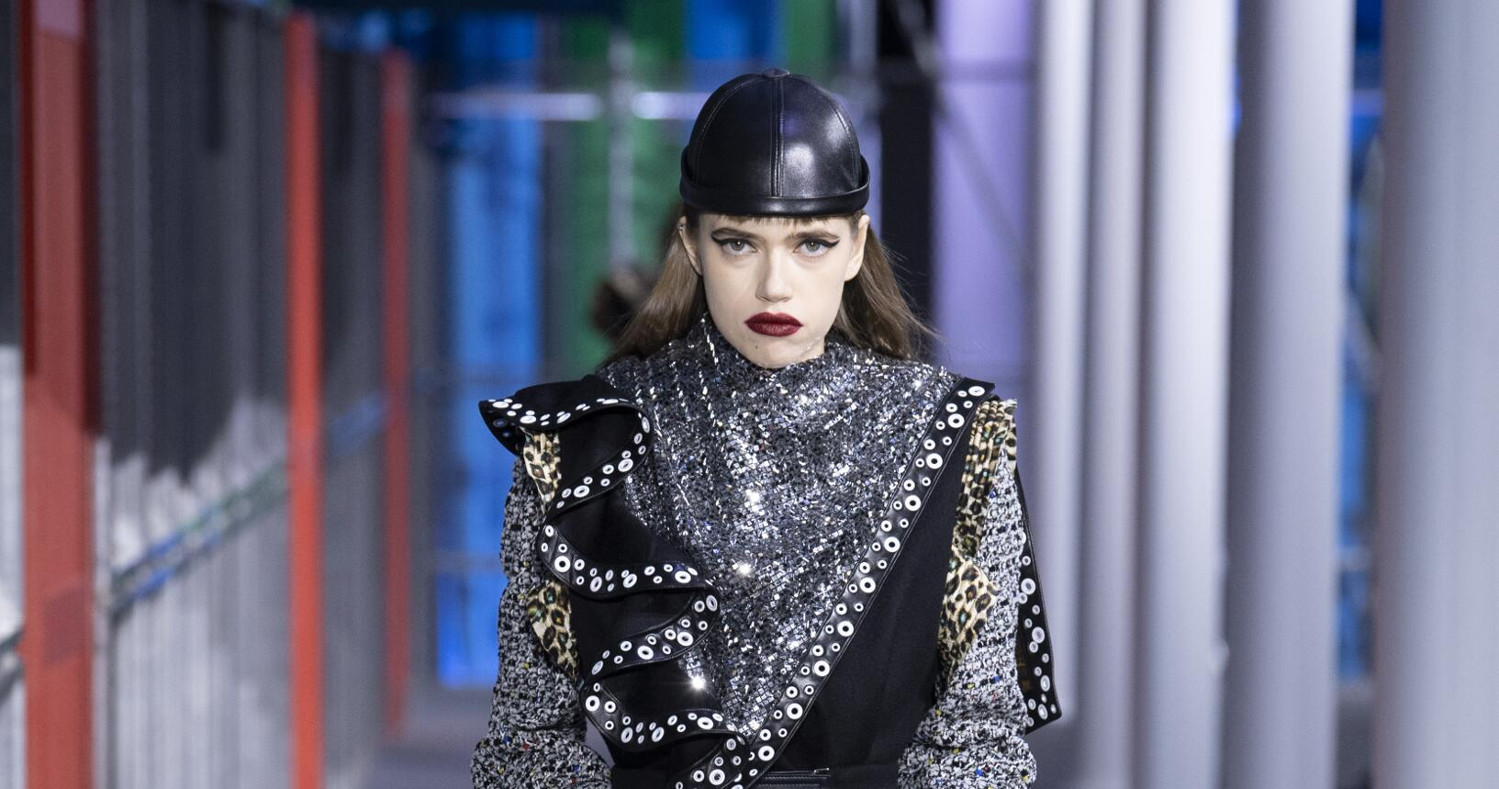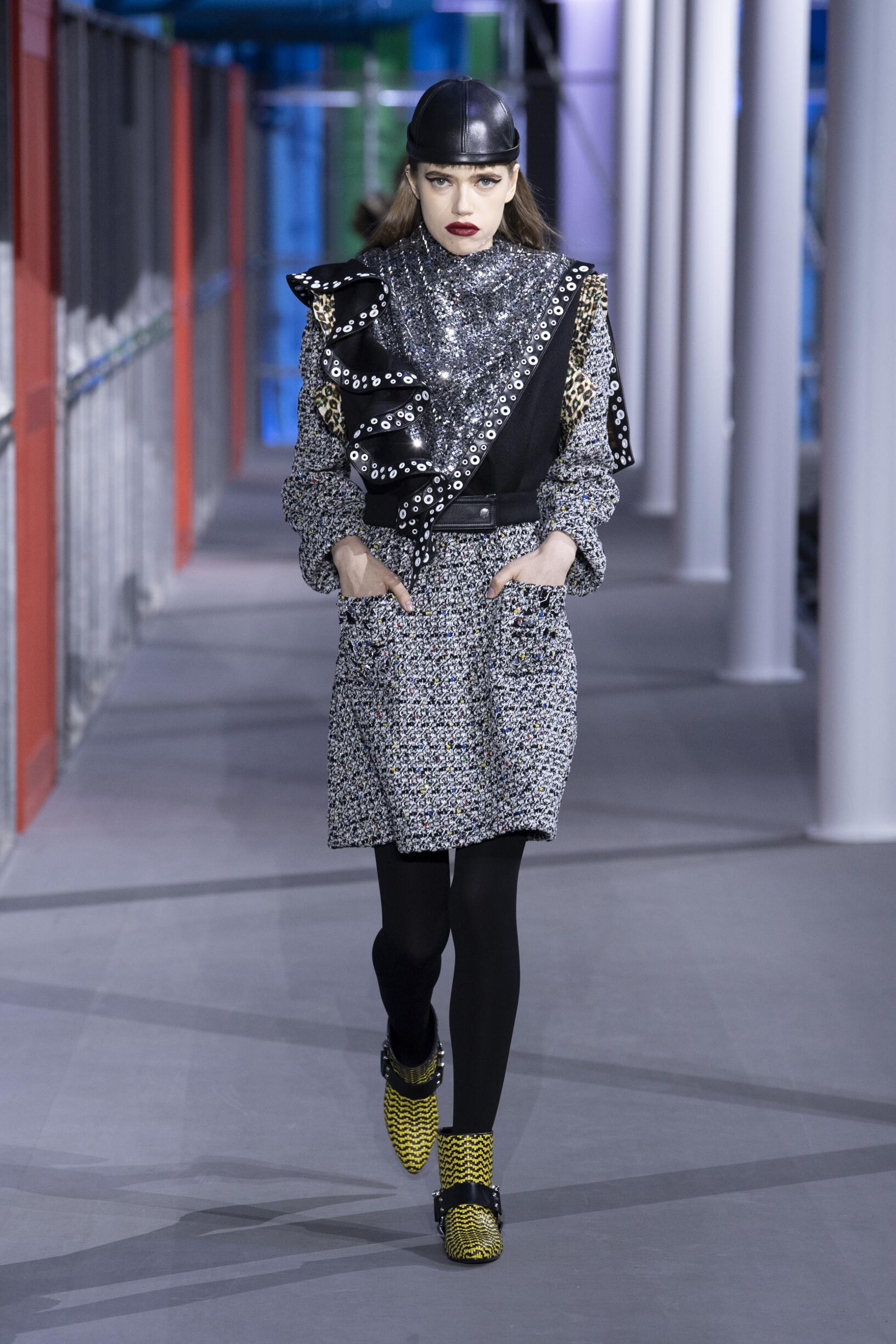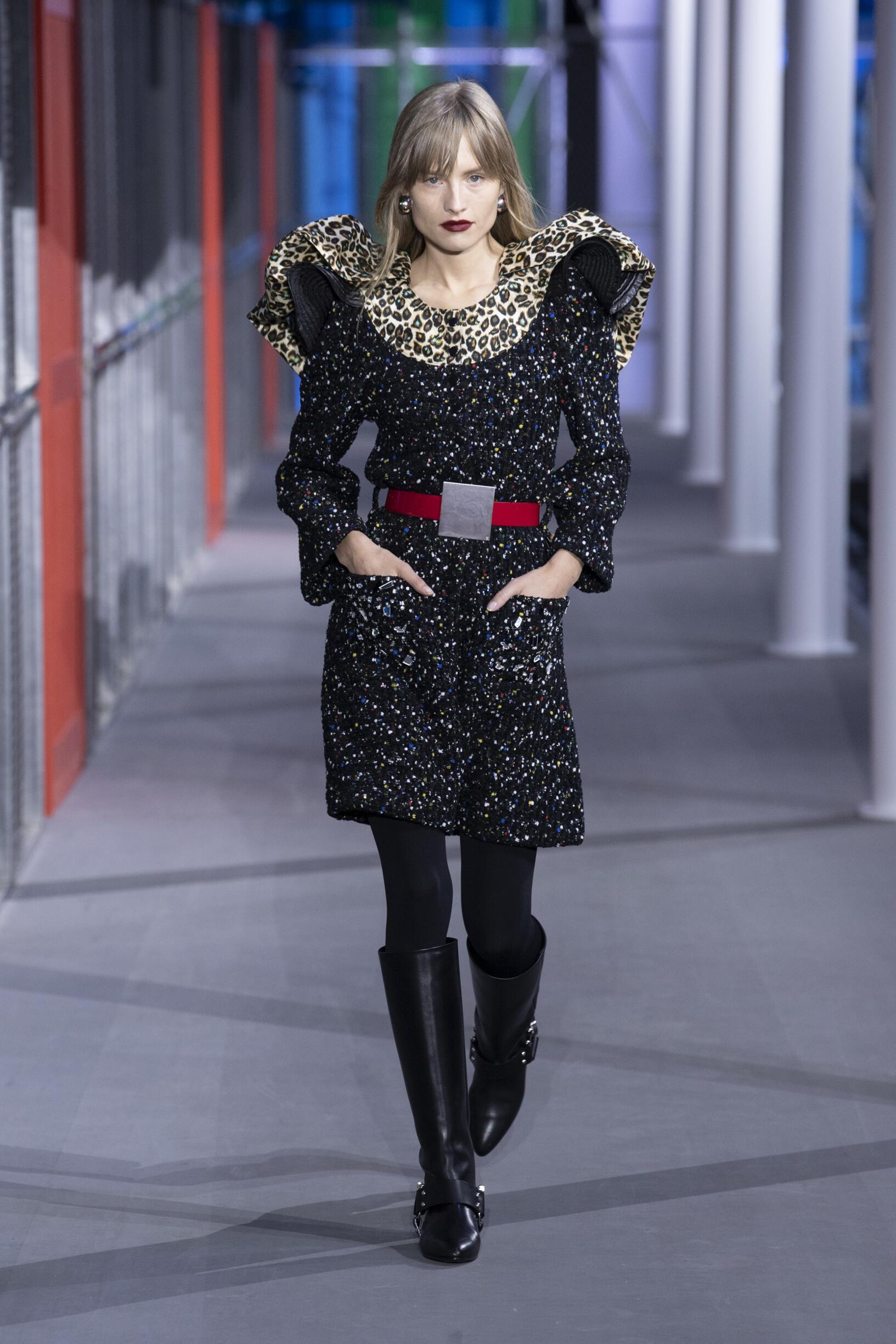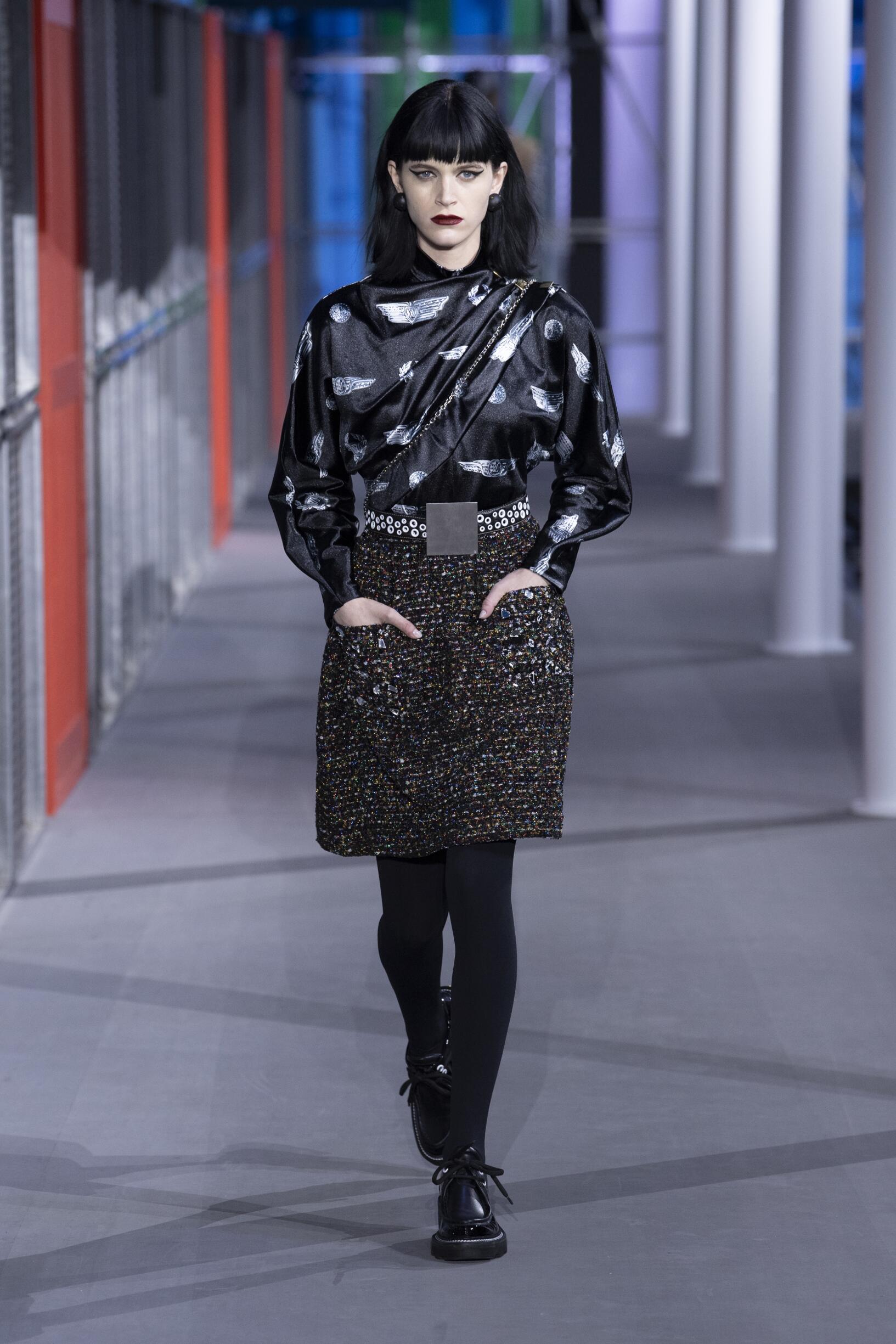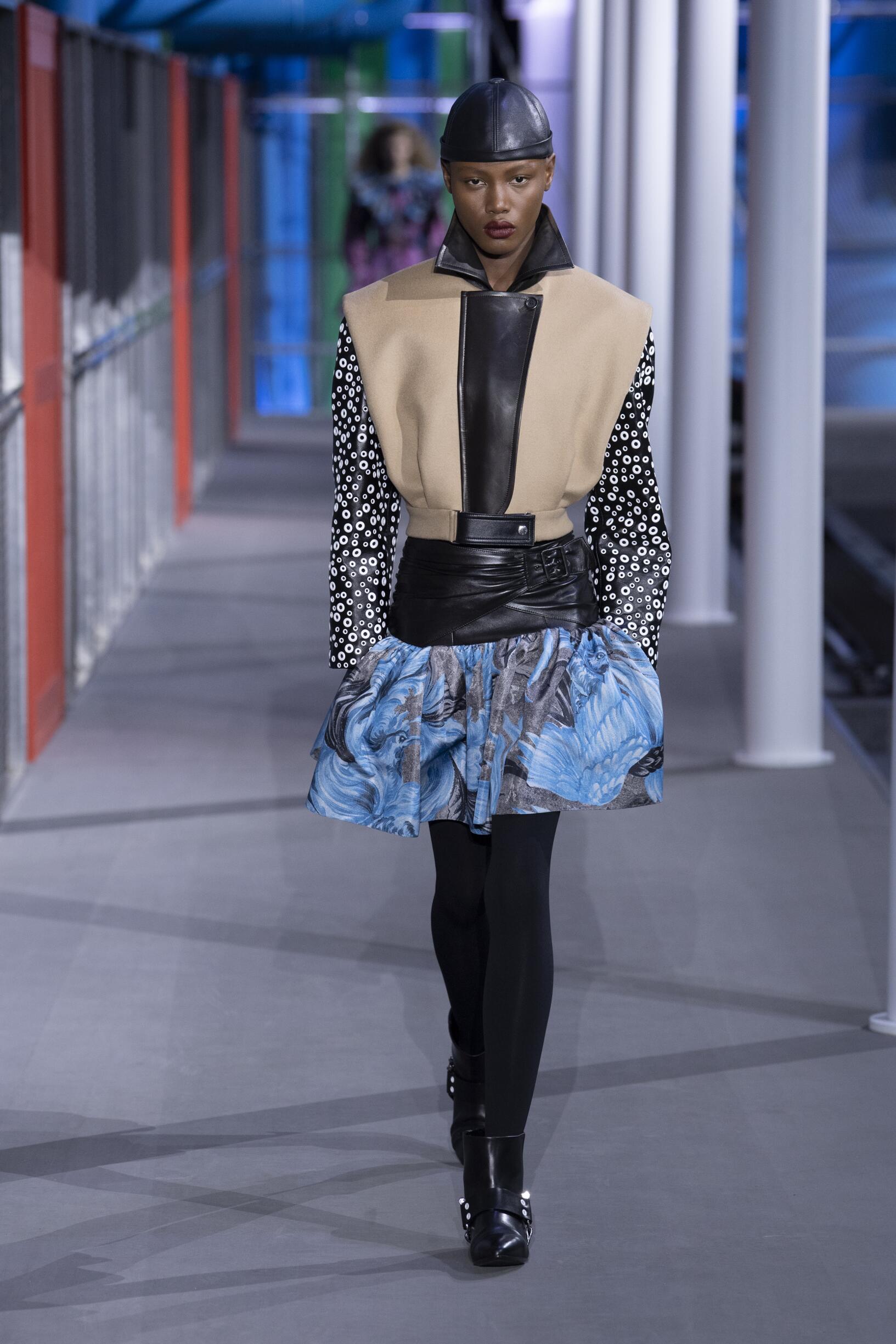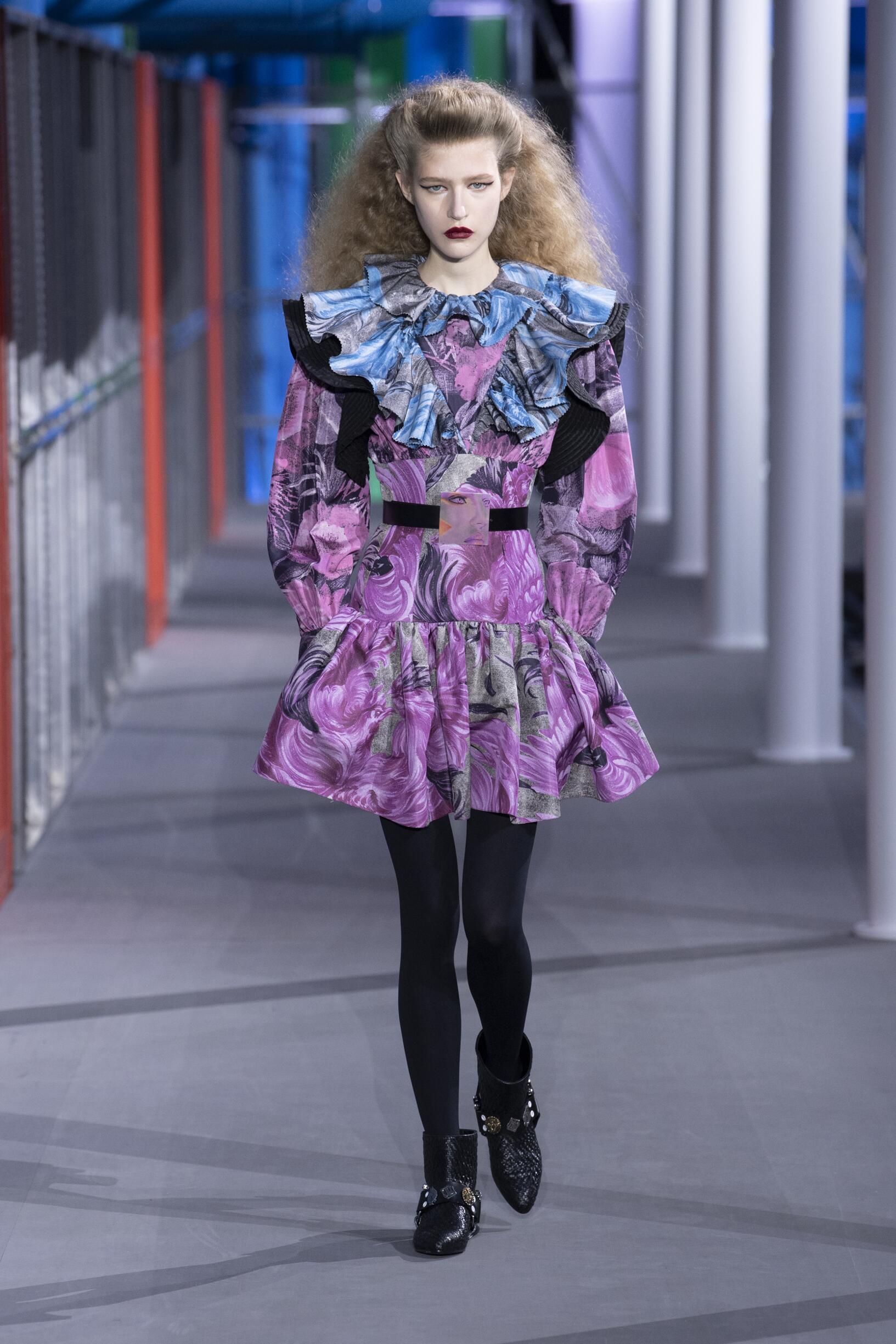Mon, March 23 2020 » Fashion Blog
LOUIS VUITTON FALL WINTER 2020 WOMEN’S COLLECTION – PARIS FASHION WEEK
Time Clash
Collisions of time. What if all of the innumerable eras that nourish fashion could come together in the here and now? And what if, in the present moment, we could confront history with contemporary freedoms, staged for the pure pleasure of fashion? A clash of styles, unexpected pairings, subverted functions… Dressing without protocol.
Going from old to new and from unprecedented to patrimonial. Anachronism becomes an attitude. Testing one’s agility with respect to a wardrobe. This collection is like a sartorial tune-up in which personality takes precedence: everyone can pen their own history.
The 200 characters in the historic grandstand are the work of Milena Canonero, Stanley Kubrick’s Designer of Costumes, who worked on “A Clockwork Orange”, “Barry Lyndon” and “The Shining”. Some 200 characters range from the 15th century to 1950.
The music was composed by Woodkid and Bryce Dessner. The piece’s title, “Three Hundred and Twenty”, refers to the number of years between the various movements referenced in a baroque composition injected with minimalistic, repetitive musical verses.
It resurrects Nicolas de Grigny, a contemporary of Bach who never won the recognition of his peers, and never played at the Louvre. In fitting with this clashing of times, today – centuries later – we are listening to Nicolas de Grigny at the Louvre.
Mon, March 23 2020 » Fashion Blog
Tue, February 18 2020 » Fashion Blog
Tue, February 18 2020 » Fashion Blog
LOUIS VUITTON FALL WINTER 2020 MEN’S COLLECTION – PARIS FASHION WEEK
Streetwear is a label freely adopted and rejected by Virgil Abloh. Through the contemporary breakdown of dress codes, the popular idea of streetwear calls for a redefifinition of the term itself. Today, streetwear characterises the clothes we actually wear and the way we wear them.
For the Louis Vuitton Fall-Winter 2020 collection, men’s artistic director Virgil Abloh studies the evolving anthropology of the suit and the reprogramming of traditional dress codes.
Tailoring and the tapered silhouette – the fifirm symbols of convention, trade and success – depart their corporate comfort zone: twisted and turned, the dress codes of an old world are neutralised, re-appropriated and embraced for a progressive joie de vivre. Don’t let your day job defifine you.
Employing his evolving premise of boyhood at Louis Vuitton, Virgil Abloh investigates the lifelong relationship formed by adolescent and young men with shirting and suiting. It is material and fifigurative exercise in freedom, presented within the familiar constrictions of tailoring.
Surrealism is the instinctive act of making the ordinary extraordinary. The abstraction of the familiar expands our routine horizons and makes us see the world through unfazed eyes. Virgil Abloh applies the mechanics of the surreal to rewind the clock on our collective age-inflflicted comprehension.
Gazing at the world through the optics of a child – of an adolescent or a young man – is tantamount to fifirst impressions, to the purity of mind and the refreshing optimism of naivety. The turn of a decade heralds an appetite for fresh motivations.
Through a childlike perspective, the phenomena and traditions we take for granted are invigorated and elevated. Hovering over our heads like the ceiling of an age-old chapel or an everlasting fifilm set, the clouds in the sky appear dreamlike and infifinite: Heaven on Earth.
Broken clocks, engineered to spin backwards, are still right twice a day. The suit – a man’s mundane corporate uniform – is de- and recoded into a symbol of craft and creativity. As part of the set in the Jardin des Tuileries, the traditional tools of the artisan are magnifified into lionised sculptures; the icons of tradition honoured and changed with equal enjoyment.
Mon, February 17 2020 » Fashion Blog
Wed, October 9 2019 » Fashion Blog
LOUIS VUITTON SPRING SUMMER 2020 WOMEN’S COLLECTION – PARIS FASHION WEEK
Returning to the origins gives rise to a high society that expresses itself through a new Belle Époque, as if in tribute to that vivacious time when Paris was pure enchantment. Circling back to the pleasures of sartorial protocol. A certain dandyism blends styles and genres based on depth of culture. Harking back to the fundamentals of romanticism and transposing Art Nouveau onto clothing.
Inventing a community that celebrates the enthusiasm of singularity. And finally, adopting as a signature the evocative cattleya orchid, worn on the lapel like the chimerical symbol of ultimate refinement. Louis Vuitton picks up the thread of its own history and brings together two nascent centuries, the dream-like dawn of the 20th century and the 21st century that yearns to remember it.
The artist Sophie appears onscreen in an extended version of “It’s Okay to Cry”, specially made for Louis Vuitton, with the participation of Woodkid.
The wood used for this show was sourced entirely from sustainably managed forests in France (100% PEFC certified maritime pine wood from the Landes region). After the show, all the wood used for the décor will be donated for reuse as part of a partnership with ArtStock, whose mission is to recycle and upcycle elements from artistic productions in order to preserve the environment. The transparent part of the structure was rented specifically for this show.
Wed, October 9 2019 » Fashion Blog
Sun, June 23 2019 » Fashion Blog
LOUIS VUITTON SPRING SUMMER 2020 MEN’S COLLECTION – PARIS FASHION WEEK
Picture a garden filled with just one type of flower, a sunrise without sunshine, or a skyline suddenly missing its age-old spire. Familiarity can programme the mind to take the most epic things for granted. For the Louis Vuitton Spring-Summer 2020 collection, men’s artistic director Virgil Abloh lionises the instinctive, the habitual and the natural.
Flowers, a staple element in fashion, are observed as a naturally occurring metaphor for diversity. In bloom, they are as beautiful on a micro level as they are on a macro level. Too often relegated to trivial motifs, flowers are wonders of nature: multi-faceted, free in expression, movement, and metamorphosis.
They are the rising stars of horticulture, an equally ordinary but highly therapeutic activity, reflective of natural harmony and peace of mind. In the cityscape, flowers blend into a horizon of unsung heroes: the magnificent buildings, bridges and pavements to which we grow accustomed and partially blind.
Seen in new light, or wrapped in different packaging, they emerge in newfound splendour. On Place Dauphine, a routine stroll across Pont Neuf from the Louis Vuitton studios, the postcard scenery of Paris sets the frame for the show. The mundanity of everyday café life, walks across the Seine, crêpe stands, and tree-lined square ambience harmonises with the typical idea of boyhood bliss: a bouncy castle, ice cream, balloons, and kite-flying.
The show is surrounded by the remarkable Parisian architecture we couldn’t live without. Through the stages of boyhood, young men’s encounter with clothes and fashion is yet to be influenced by societal programming. Our exploration of dress codes is still liberated of those codes; of social norms, gender conventions, and cultural conduct.
As we get older, we intuitively adapt to the familiarity of our surroundings. In a digital age oversaturated with views and visual data, stopping to smell the roses de-programmes the mind and makes new space for freedom of thought.
Sat, June 22 2019 » Fashion Blog
LOUIS VUITTON FALL WINTER 2019 WOMEN’S COLLECTION – PARIS FASHION WEEK
Perceptions shift… In the Louvre’s Cour Carrée another emblematic institution rises for a finite, illusory moment. In this museal collaboration, Louis Vuitton converges on the most fascinating of territories: culture. Culture: what we see, what we accept, what we learn. What’s left to us….
Beaubourg is the symbol of a certain culture of fashion, when it takes a stand and expresses itself with a passion. Nicolas Ghesquière gained stature in an atmosphere of revival. And the Centre Pompidou, a fabulous example of generational architecture, represents the most captivating dialogue between a surprising construction and a historic Parisian neighbourhood. Paying homage to the clash of old and now is the very principle of a collection in which debate is deliberately lively, like a reverberation of the museum’s inauguration, in 1977.
The Fall-Winter 2019 collection speaks to a vision of fashion, when one is sure of one’s potential and knows with conviction that this is the path to follow. When everything one discovers in the enthusiasm of youth becomes the foundation of stylistic certainty. This collection is an invitation to cultural references. “Refinery” sweaters and “Carcass” dresses. The Monogram and the Damier oscillate on accessories in equal time.
A graphic juxtaposition that surfaces on the new “Monogram LV Pop” and the beginnings of the “The LV Arch”, a bag as classic as it is knowledgeable. A nod to the monumental clock that counted down four hundred million seconds to the third millennium. The elusive state of being known as the Parisian.
Paris: a centrifuge. Inside/outside silhouettes, the very legitimacy of a starry-eyed young man in Paris, what he’s made of and what he will become. What there is to be seen, sincerely. Just as the the Centre Pompidou was created, with all the functional elements on the outside, the better to dress the inside. The incredible feat of the Centre Pompidou that could also apply to fashion is the ID Code of fluidity, an architect’s glossary that’s both formal and fanciful. Green is water, blue is air, yellow is electricity. Red is human. At Beaubourg, as in fashion, everything’s a matter of flow. Power is identified through the gesture.
Nicolas Ghesquière: “The Centre Pompidou, Beaubourg, Les Halles, Place des Innocents: A fascinating incubator of a neighborhood. An incredible melange, converging in the epicenter. The cliques, the styles, the life… I love that imprvession of a sartorial melting pot. Today, I’ve transposed it at Louis Vuitton: a House of multiple expressions..”
“The Centre Pompidou is a prototype. It’s an artisanal piece. People may laugh, but it’s all handmade! Industrial production starts with a craftsman’s gesture. The great advantage you have when you create an industrial product is that, with the artisanal piece you make, you have the time and the opportunity to make it and remake it time and again. Which is to say that the circularity of the creative process, which means conceiving of something, producing it, re-conceiving it, re-producing it and starting over again, the circularity of the culture of doing, the material, of action… This mix feeds the culture of conceptions. Which has always been the human spirit of creative work.”
Renzo Piano, architect of the Centre Pompidou.
“It took shape, on paper, with places dedicated to all, of all ages and origins, a cross between the British Museum and Times Square. Between culture and the everyday. In a way, that’s what a space for living is. We were very worried at the beginning because I was afraid the building would be too cold and we wanted to create a cultural machine that would be, by turns, culture and machine, something that could evolve. We had five floors, each the size of two football pitches. So the idea was to adapt to the evolution of everyday life.”
Richard Rogers, architect of the Centre Pompidou.
Louis Vuitton thanks Richard Rogers and Renzo Piano, architects of the Centre Pompidou, as well as Serge Lasvignes, President of the Centre Pompidou.
Thu, March 7 2019 » Fashion Blog


